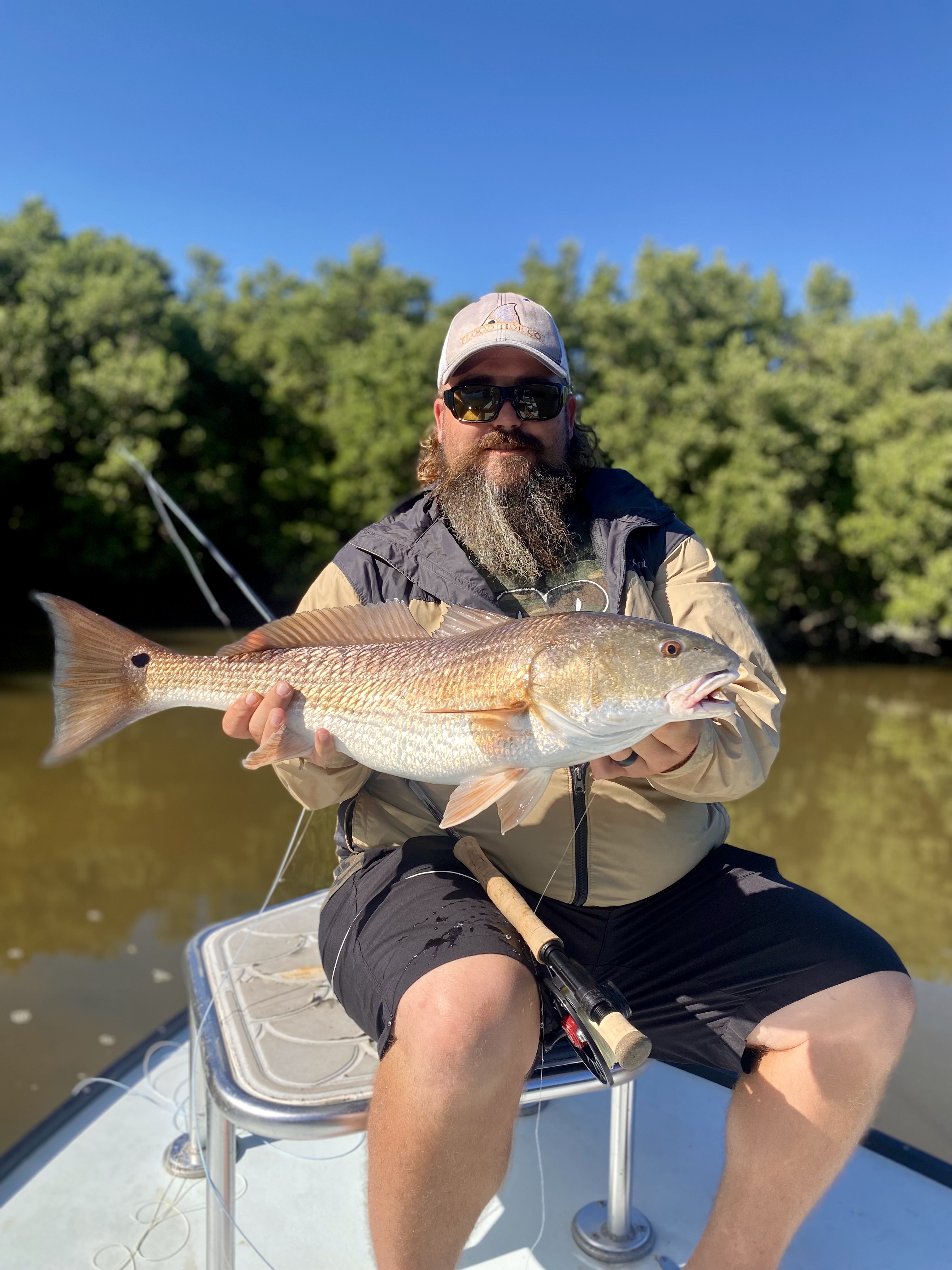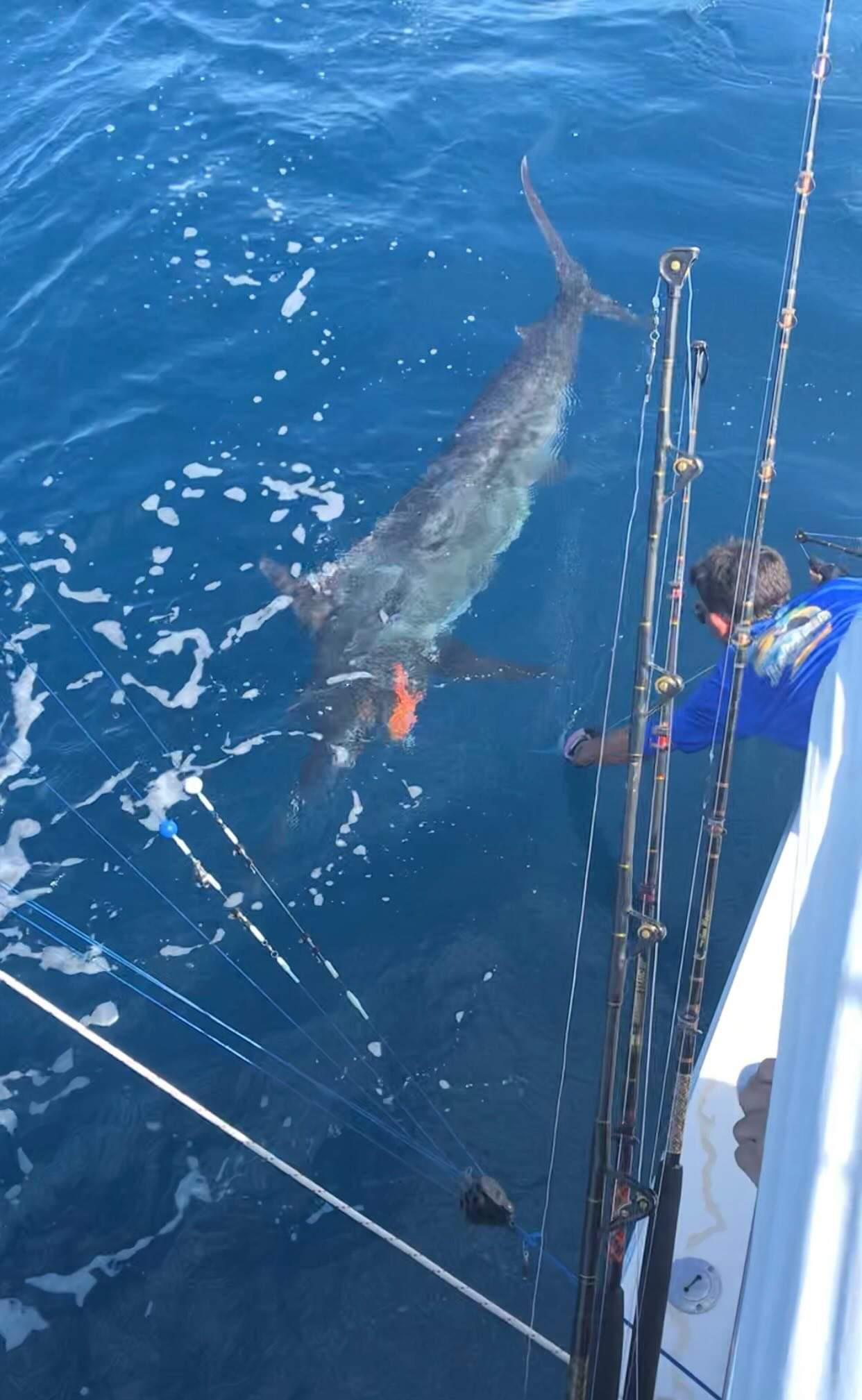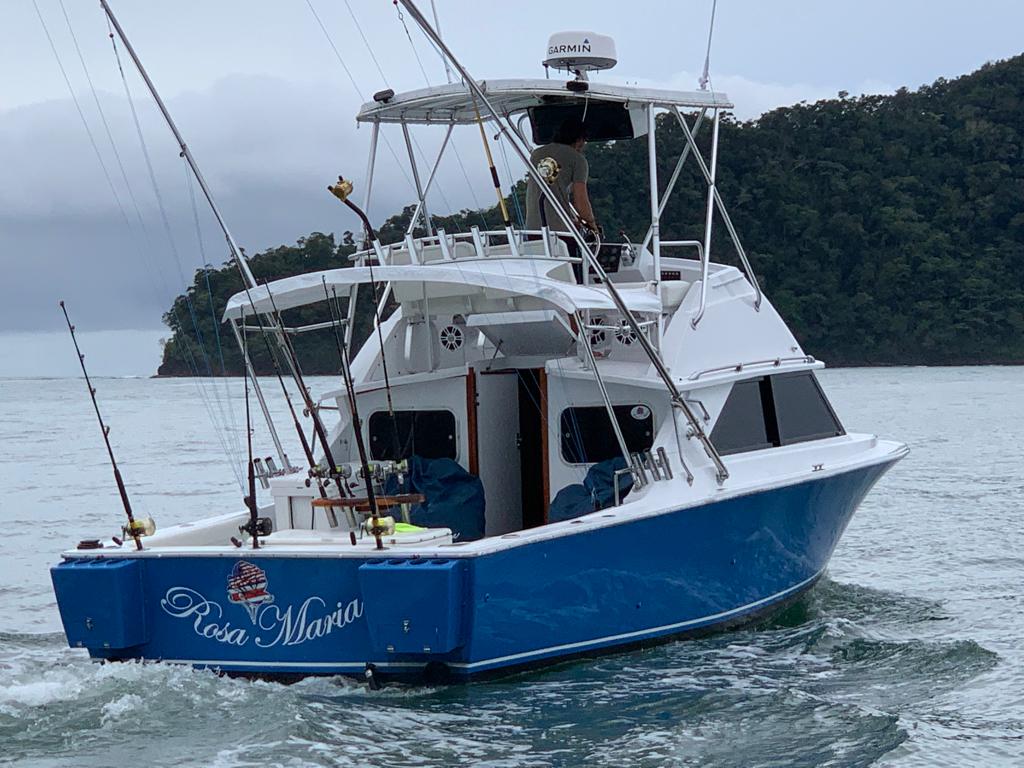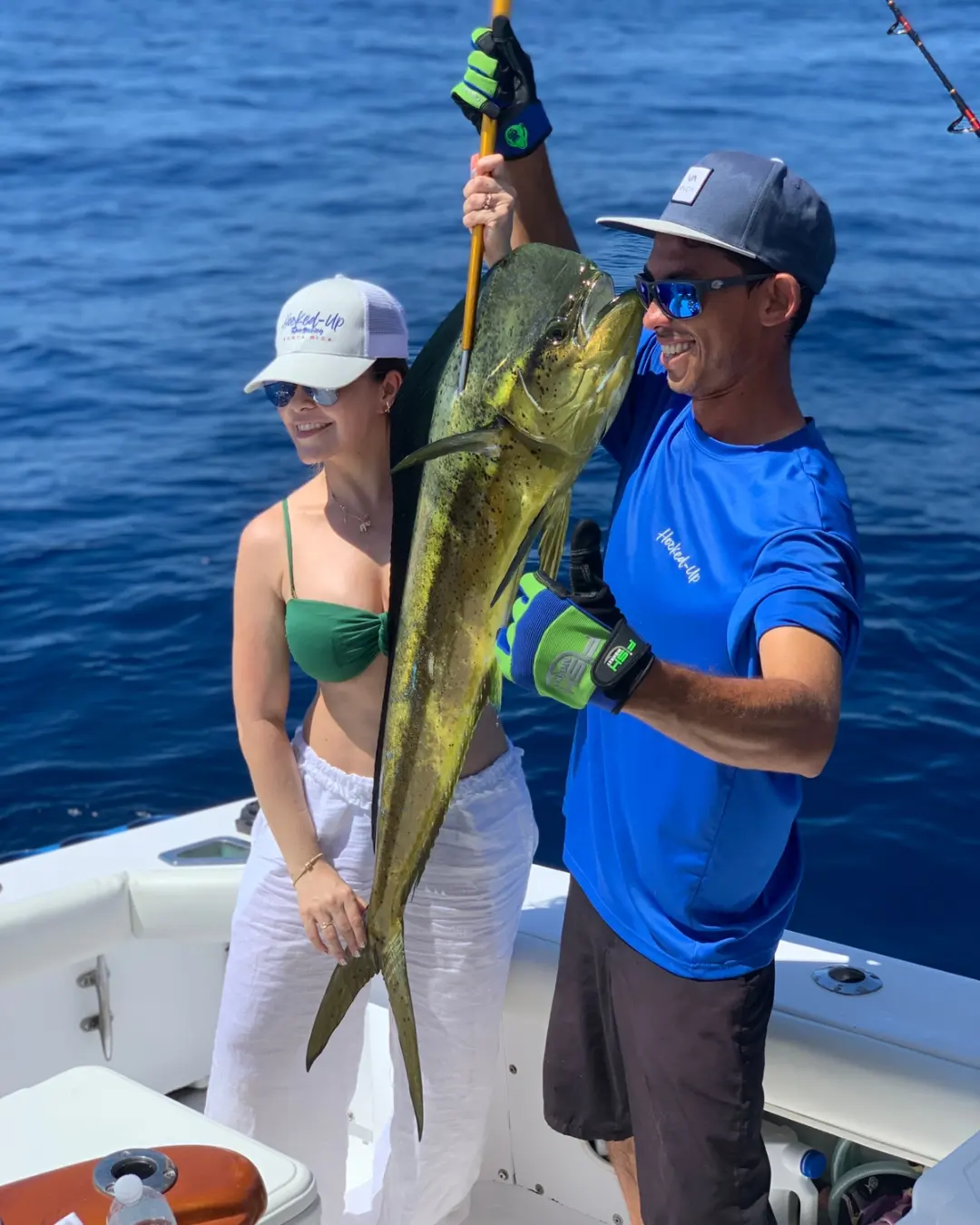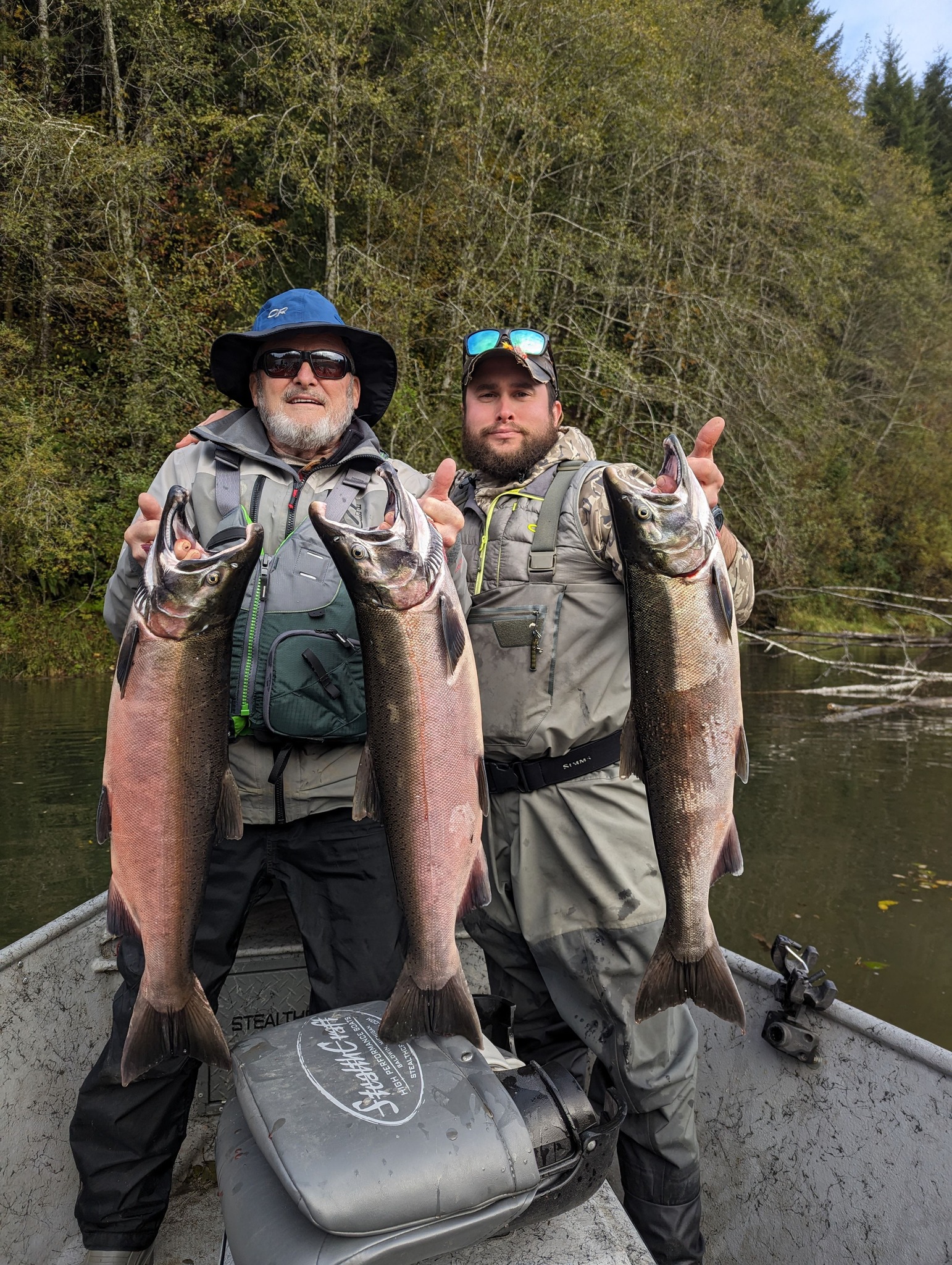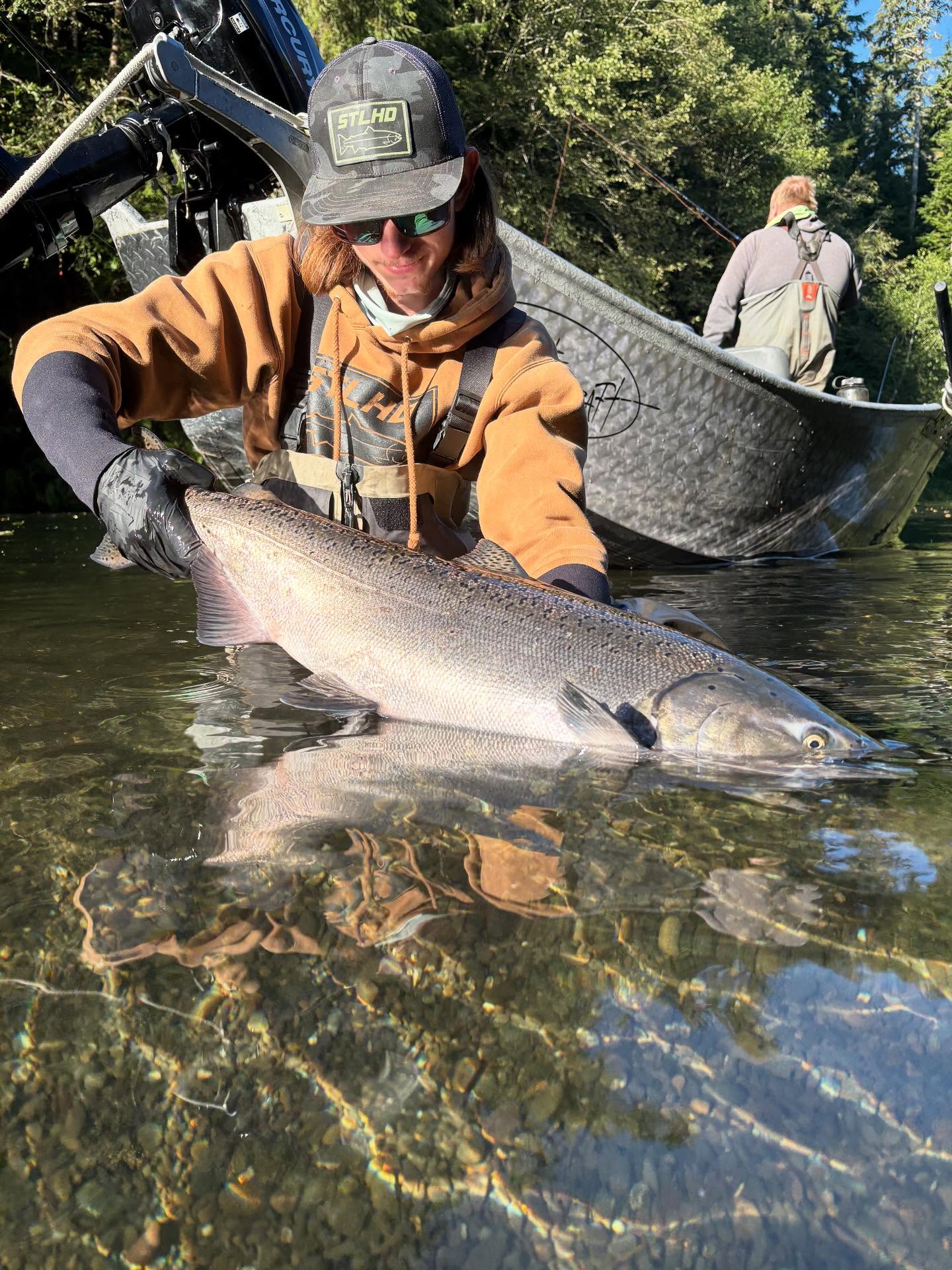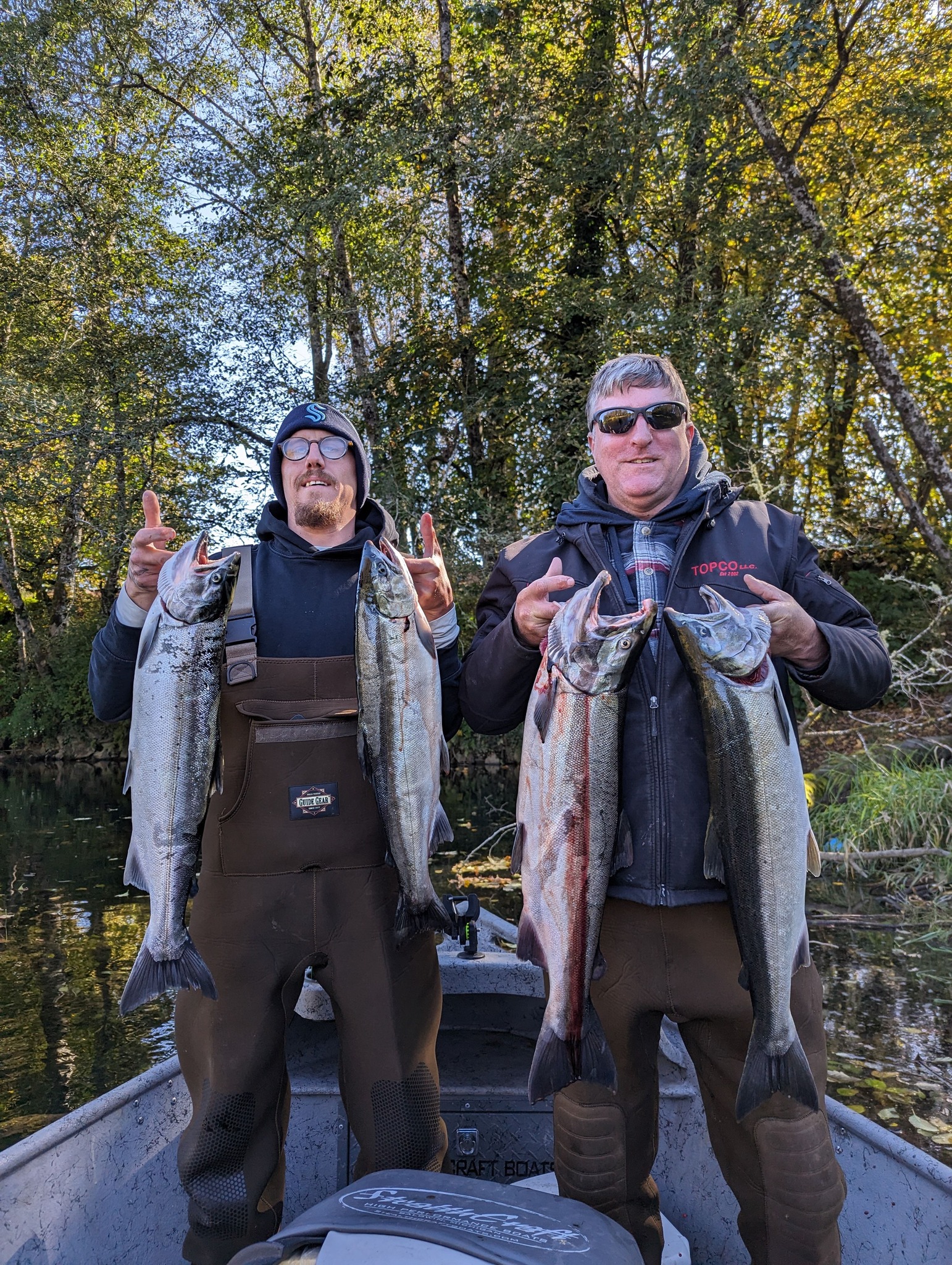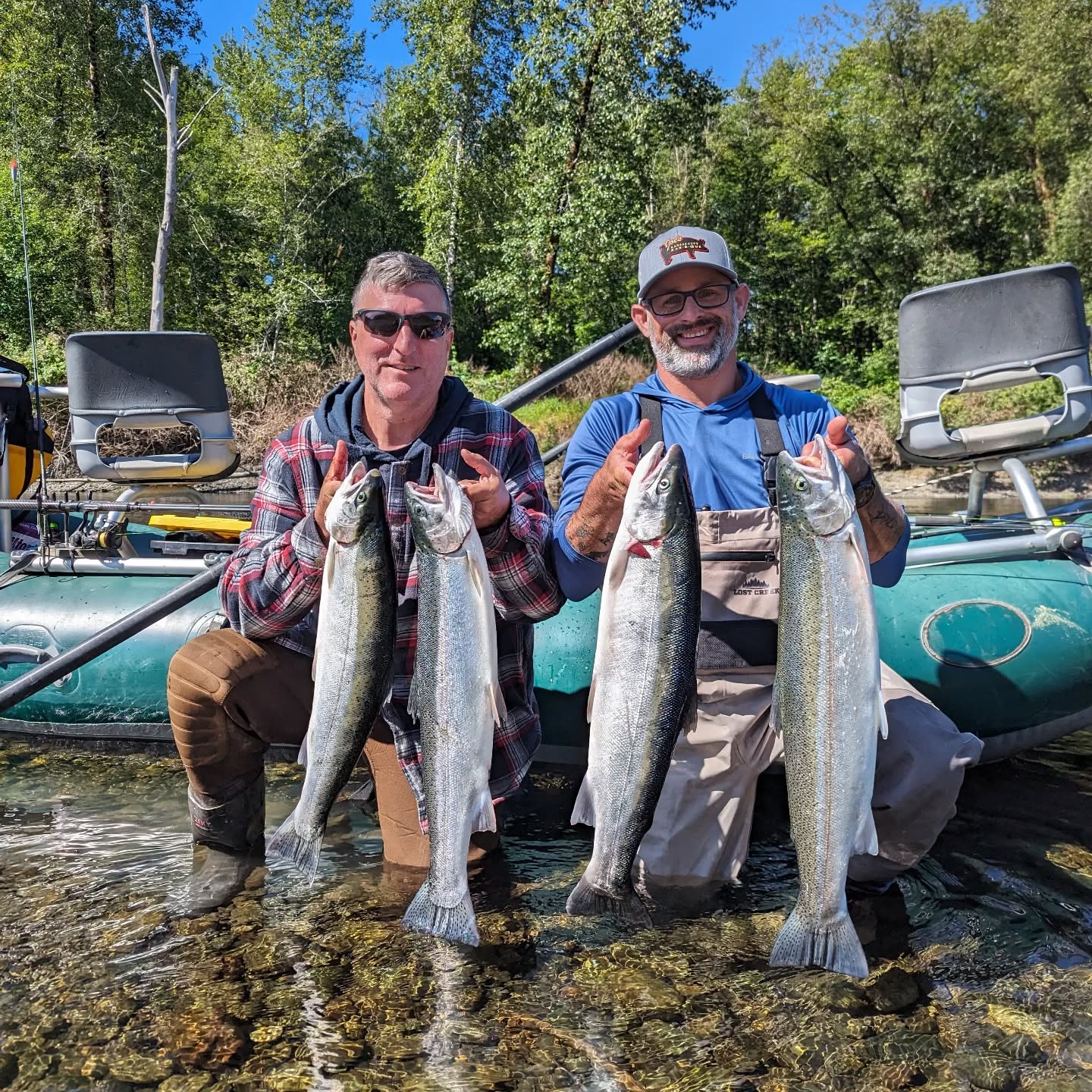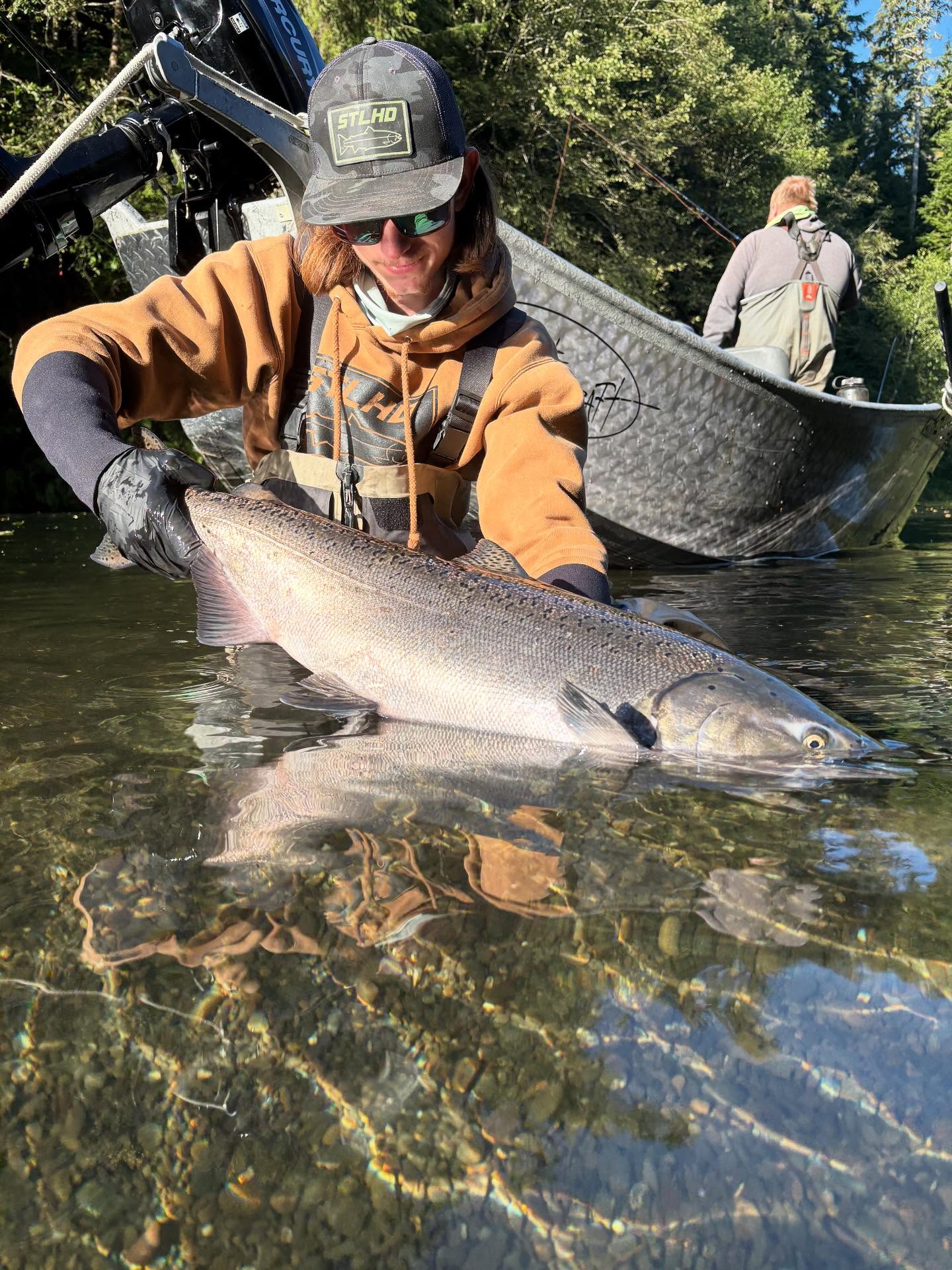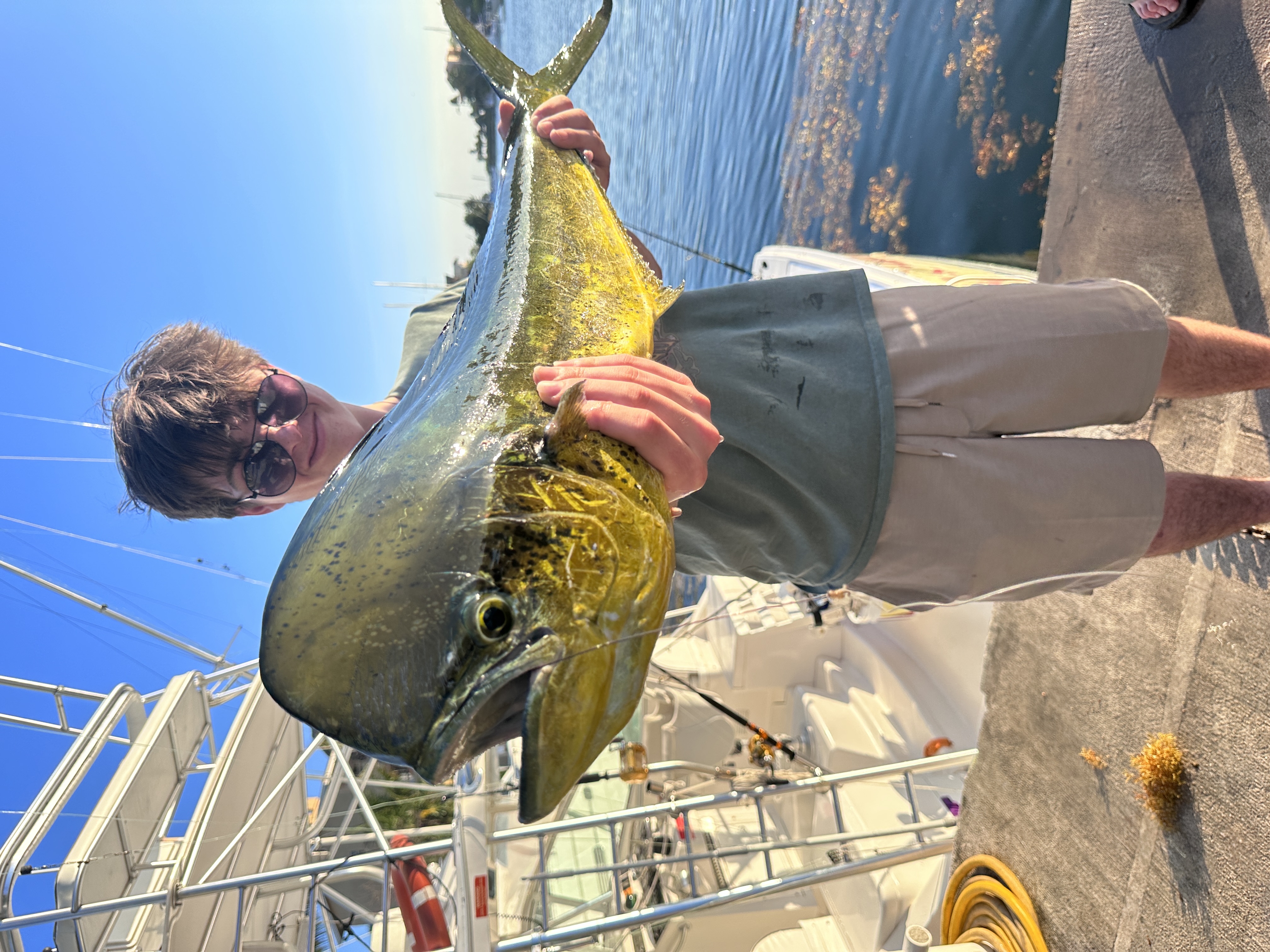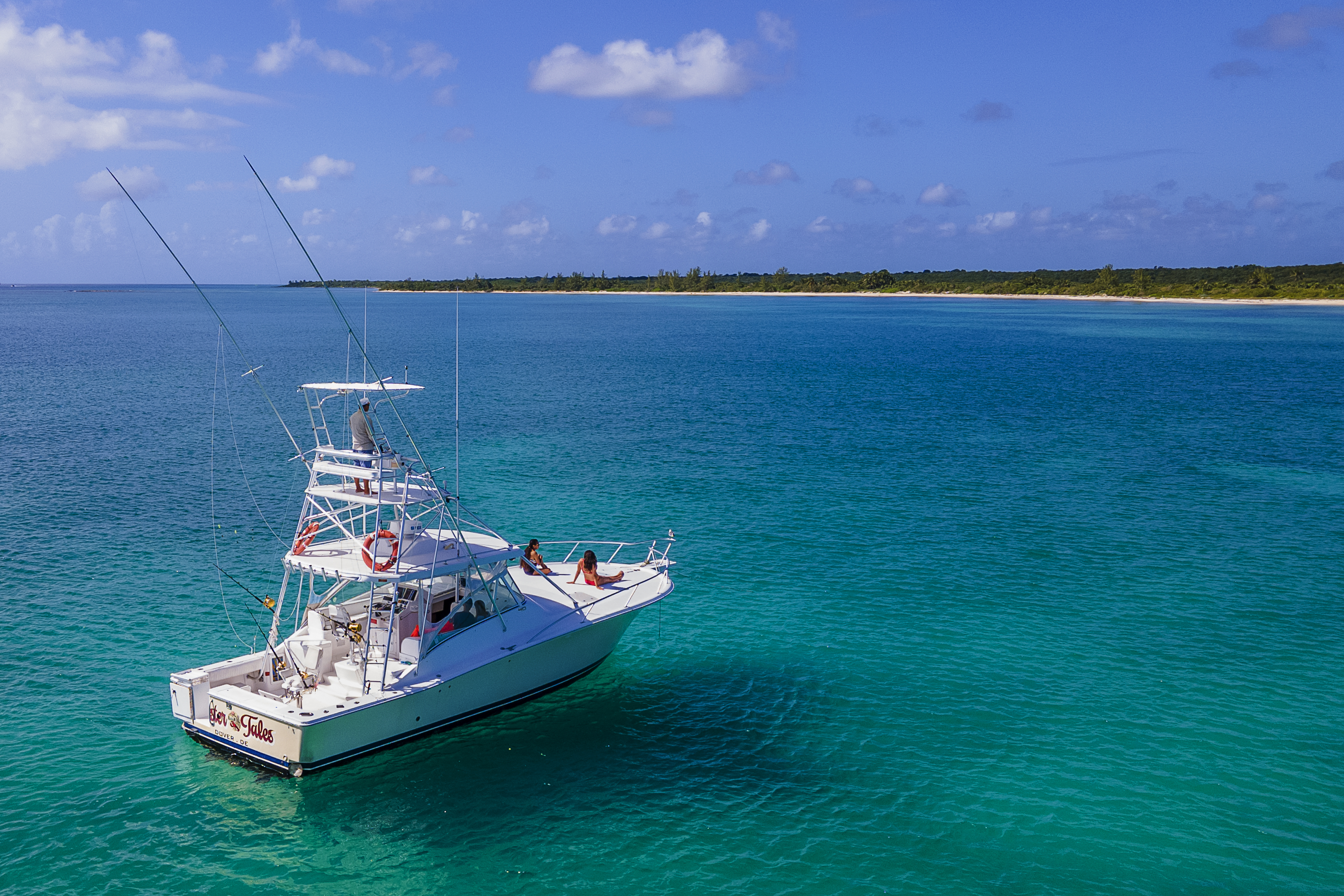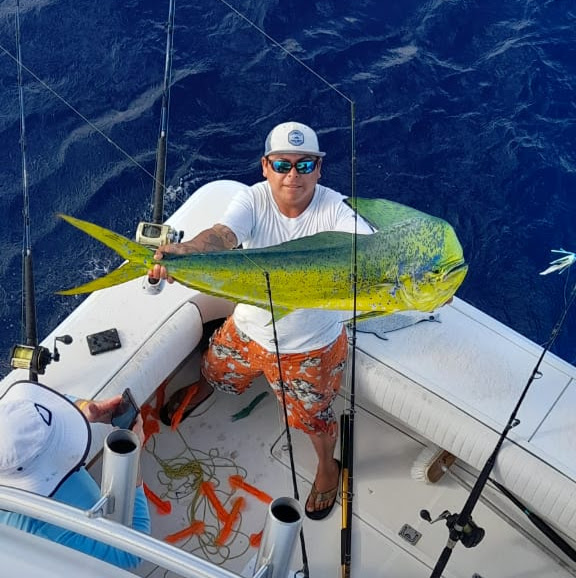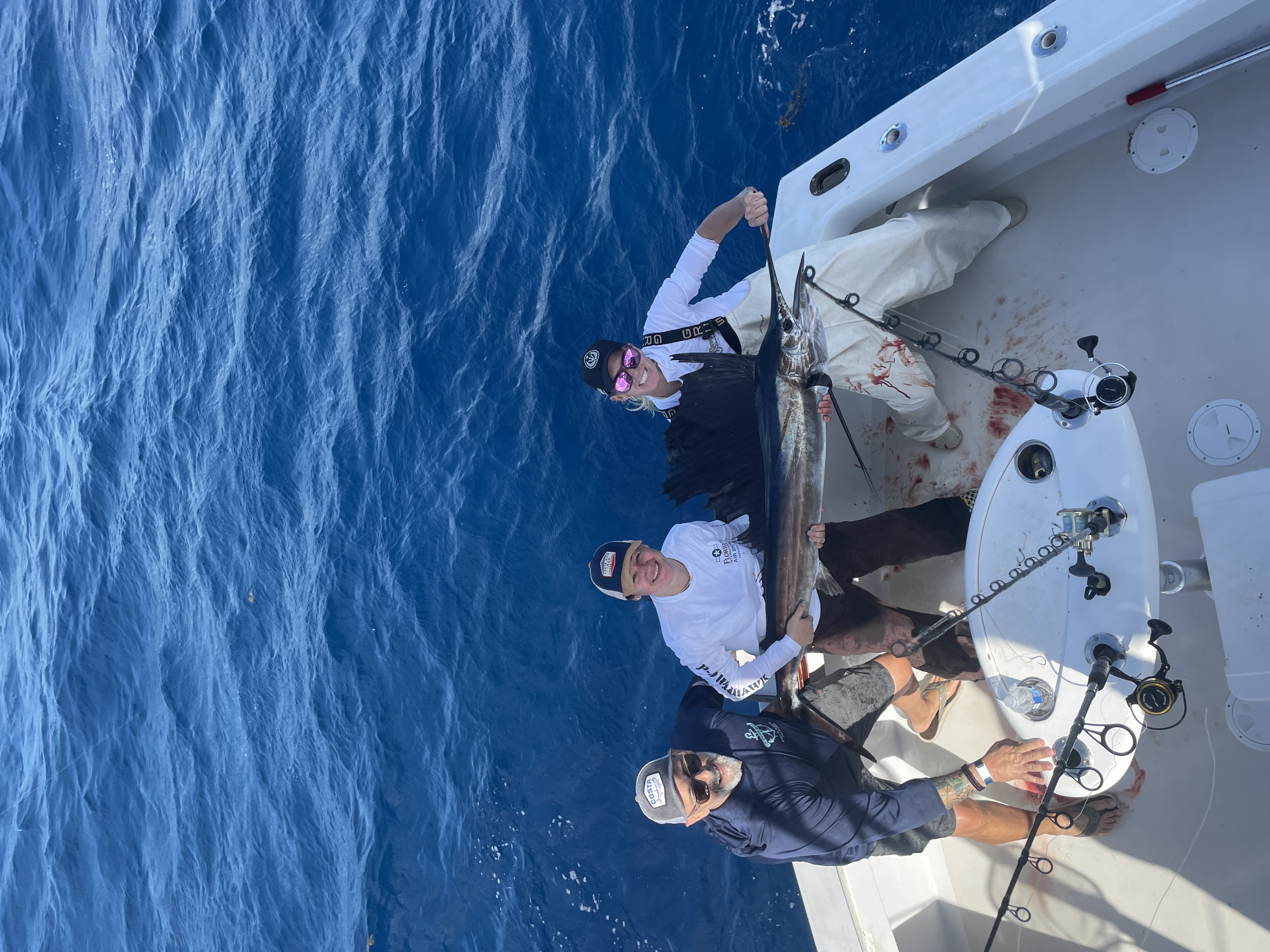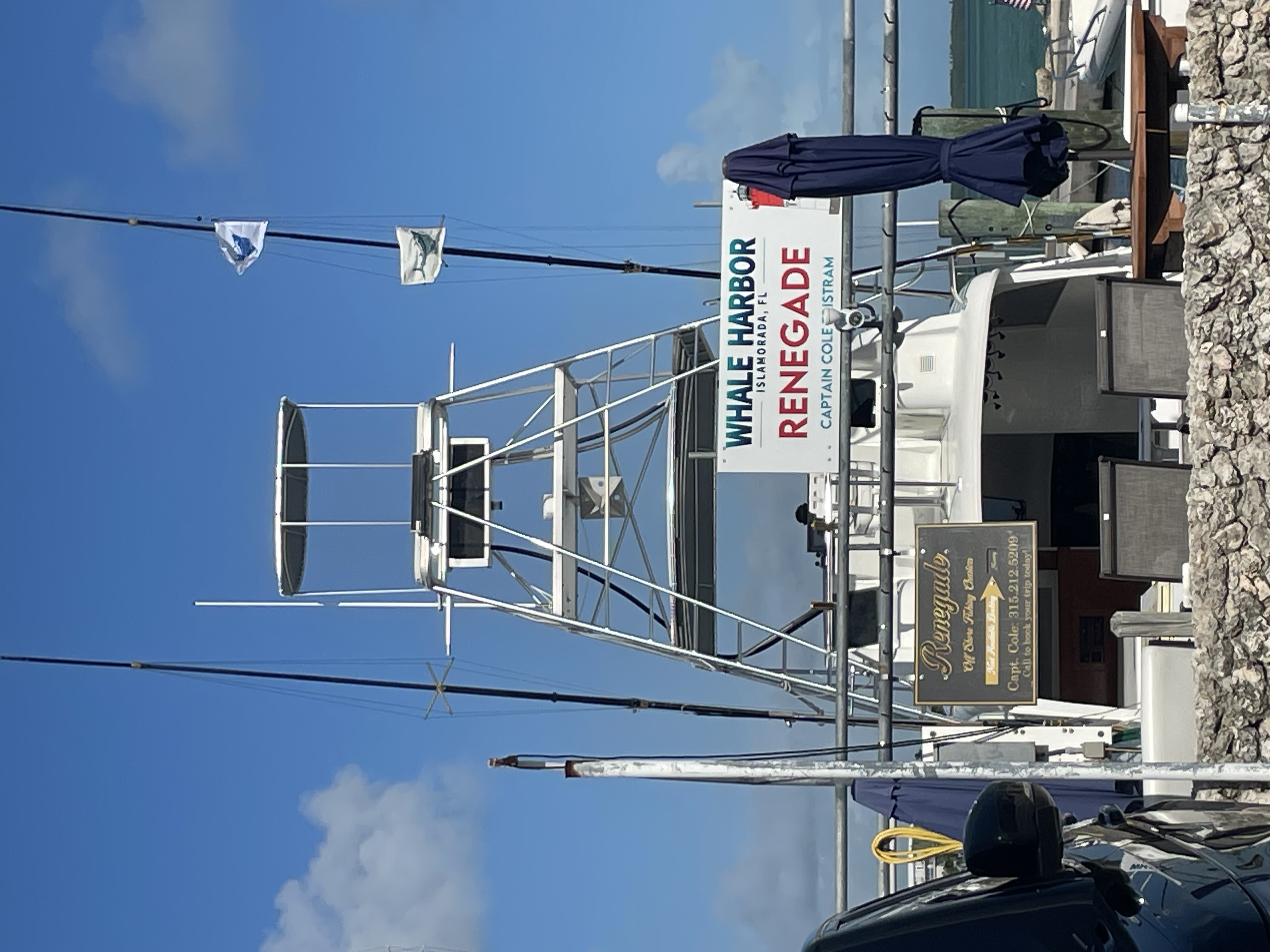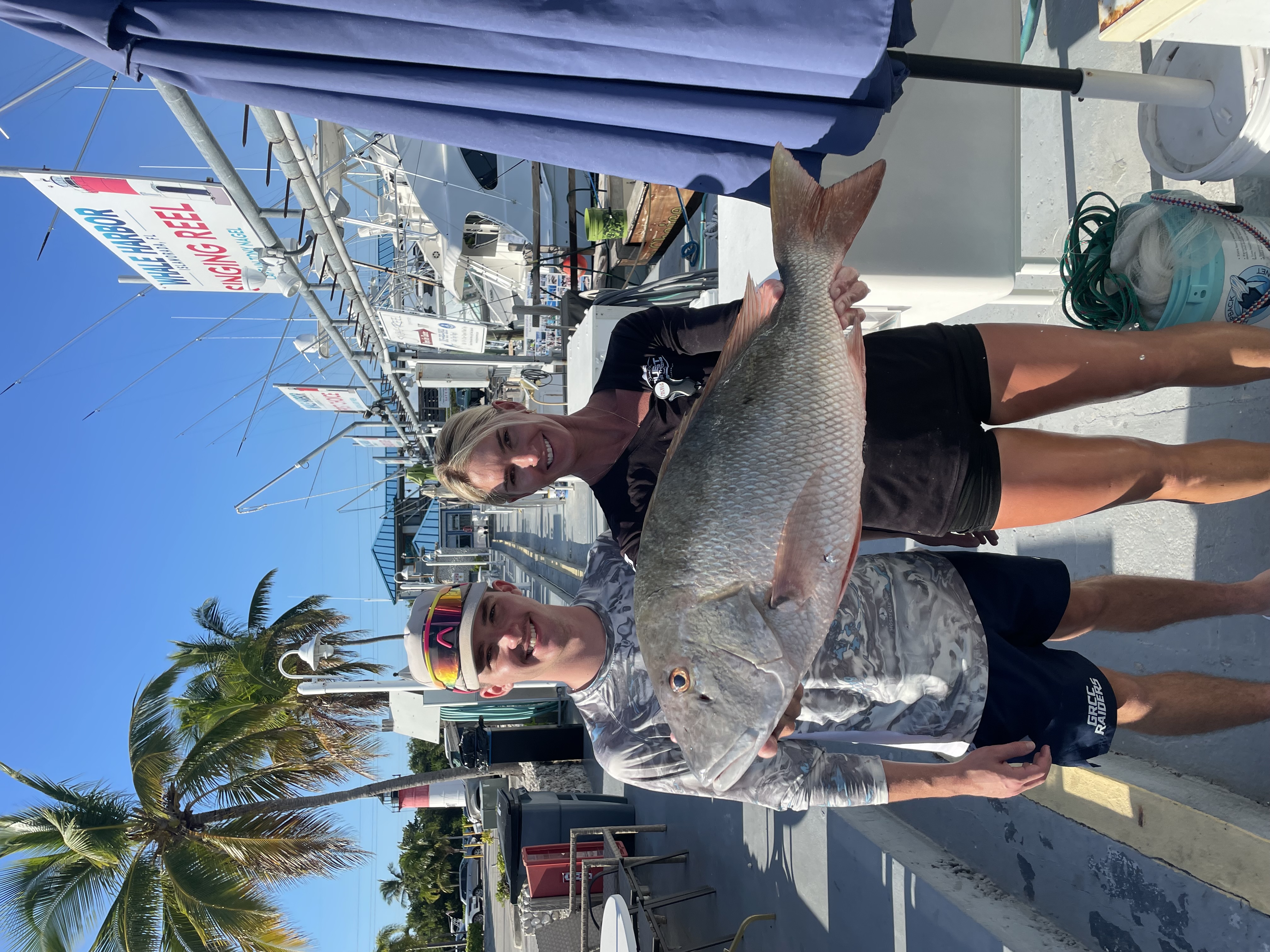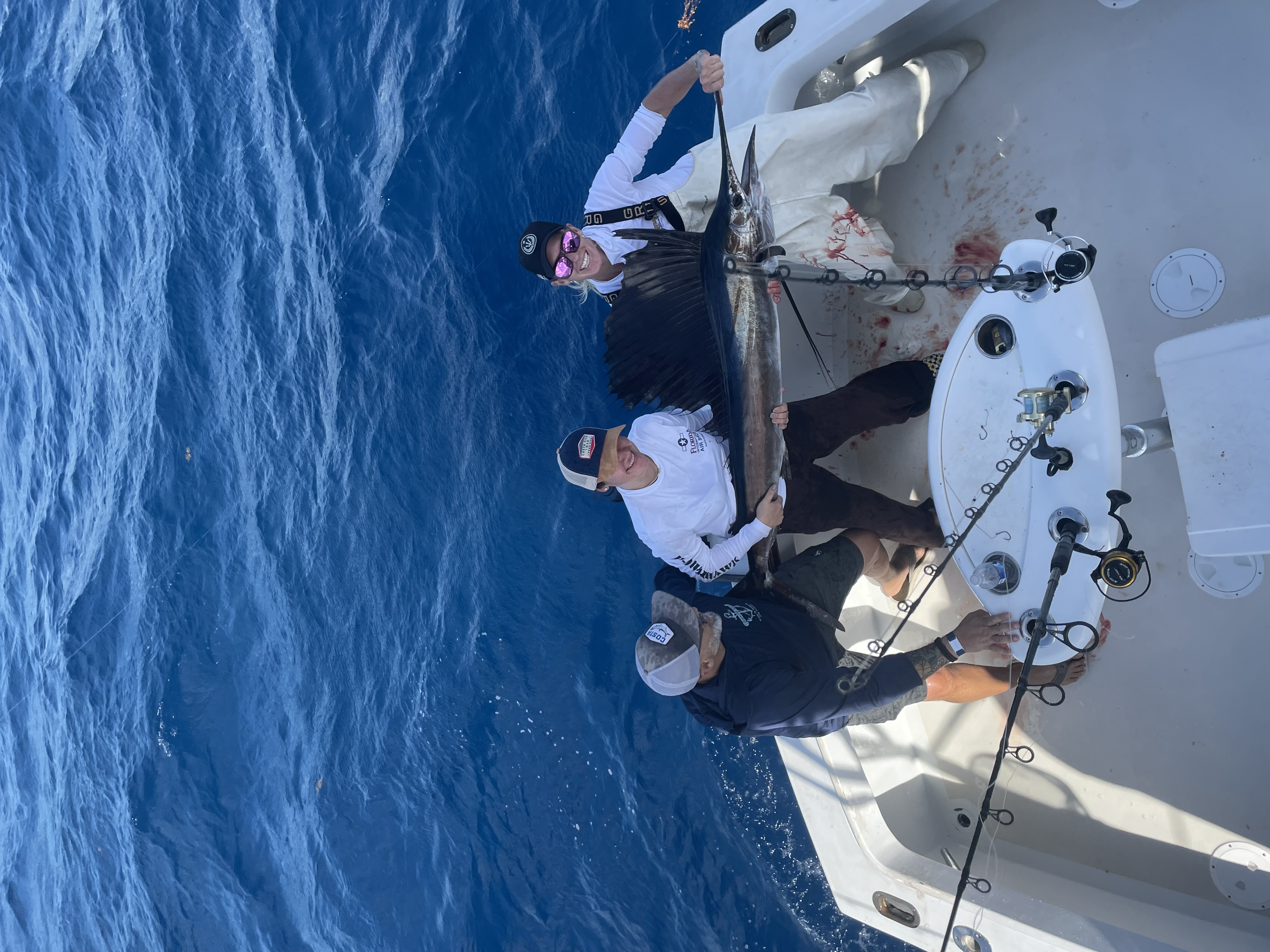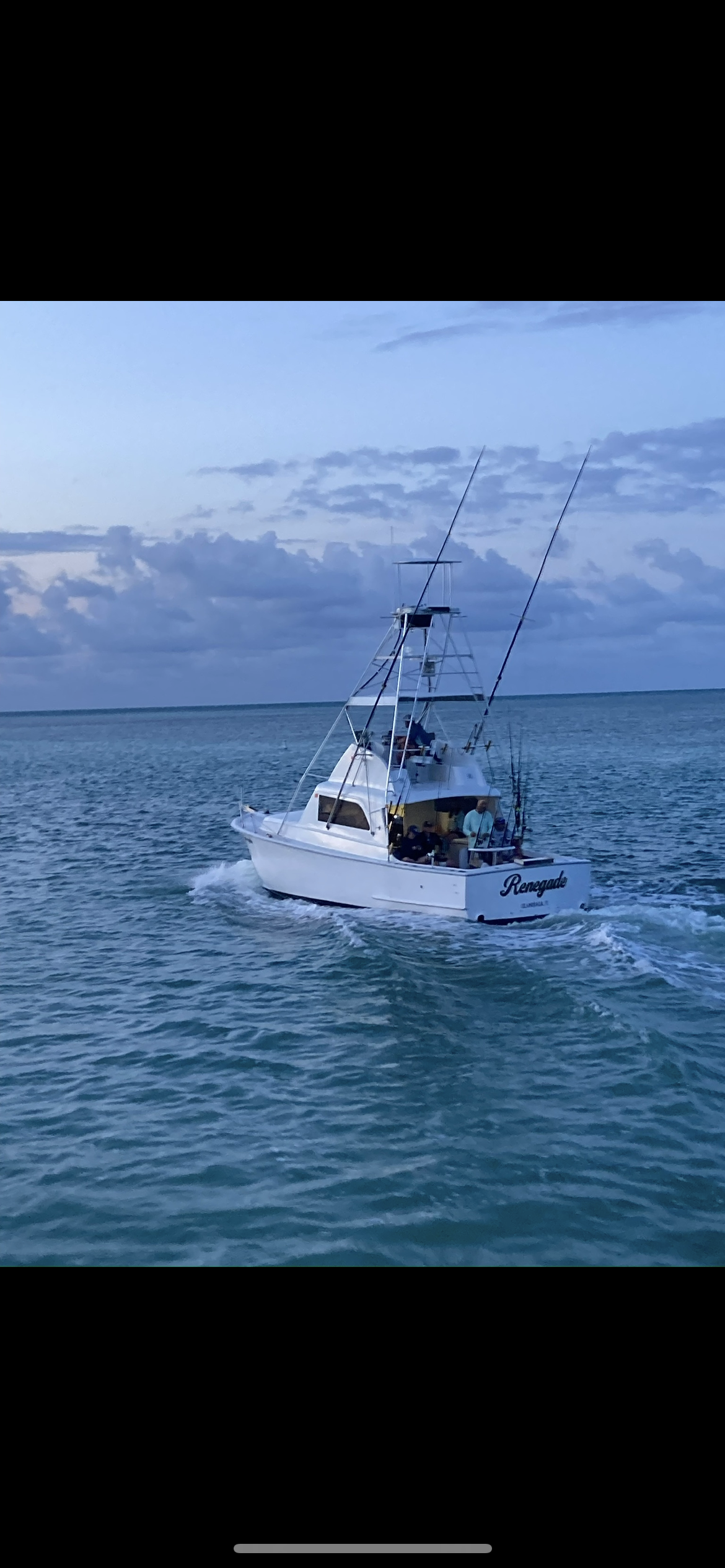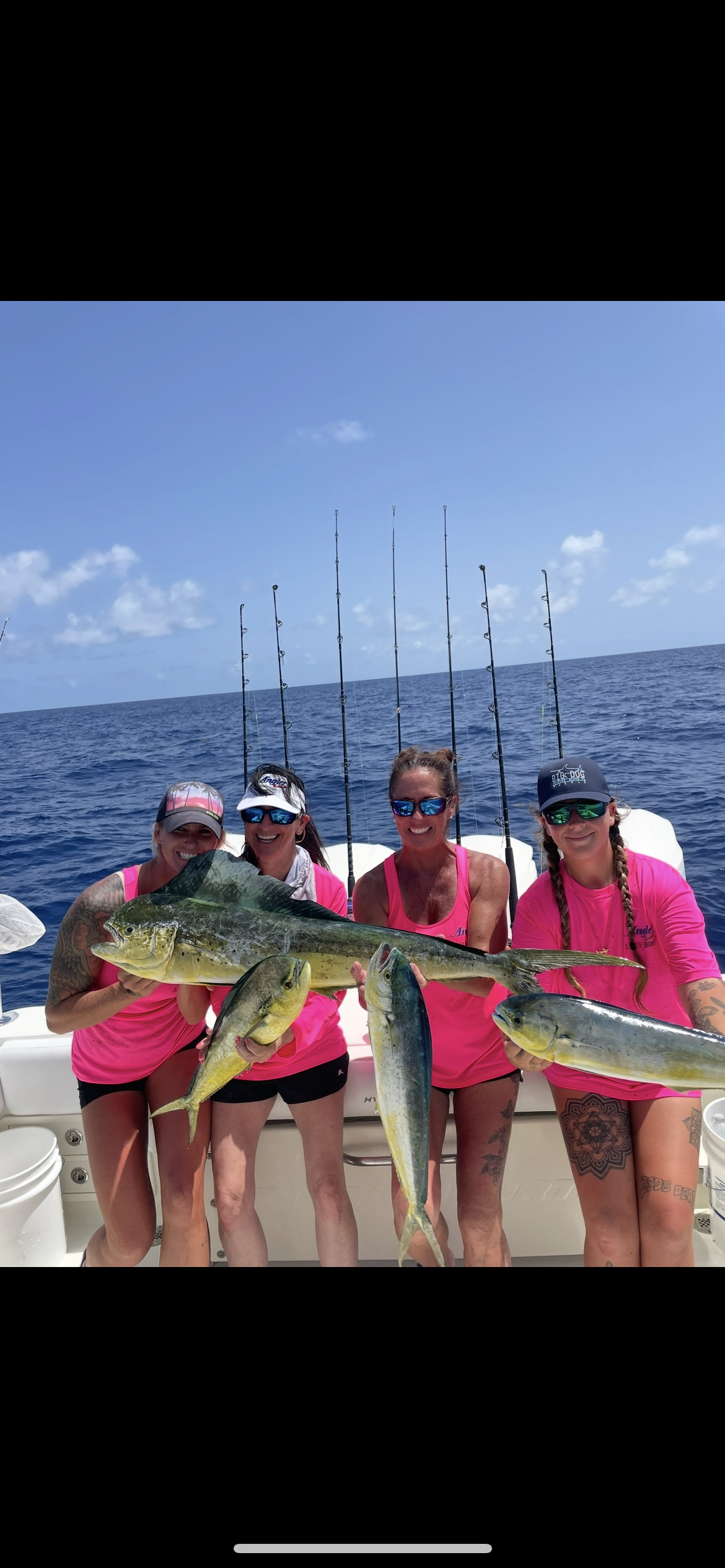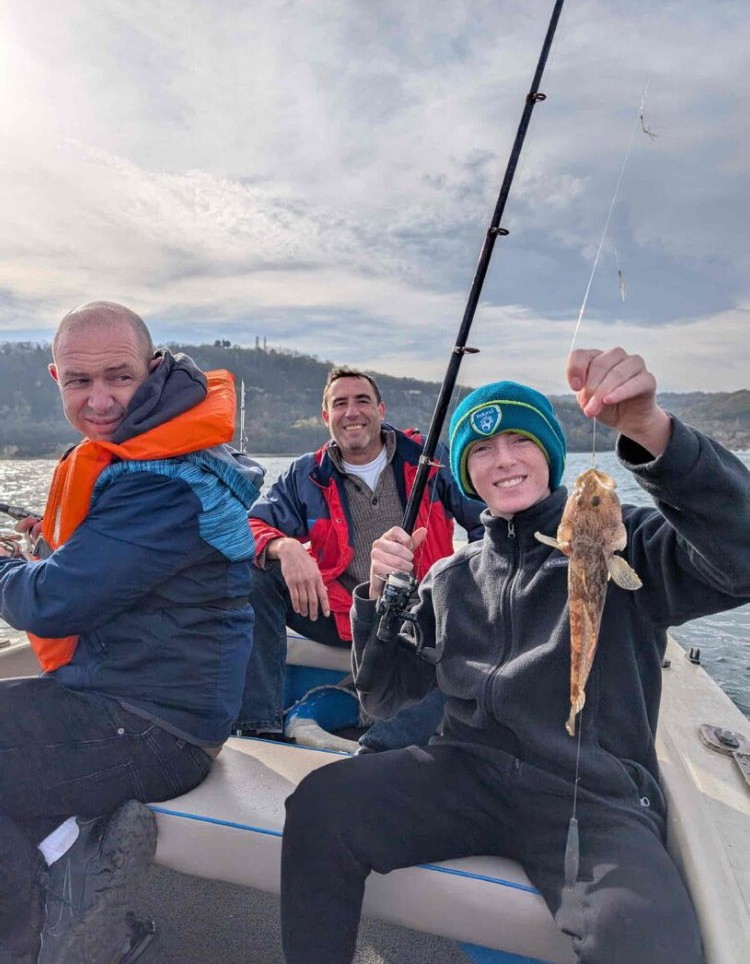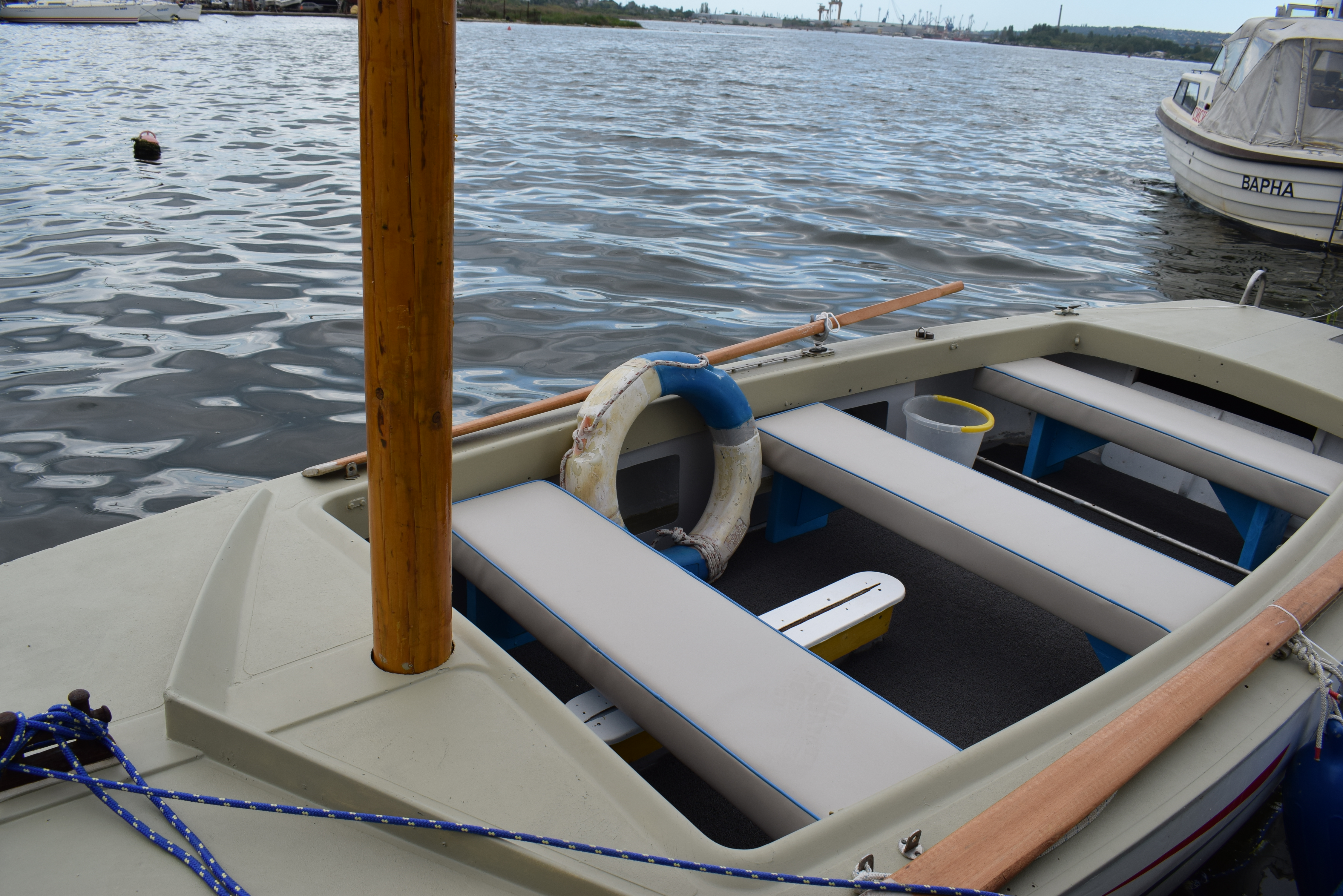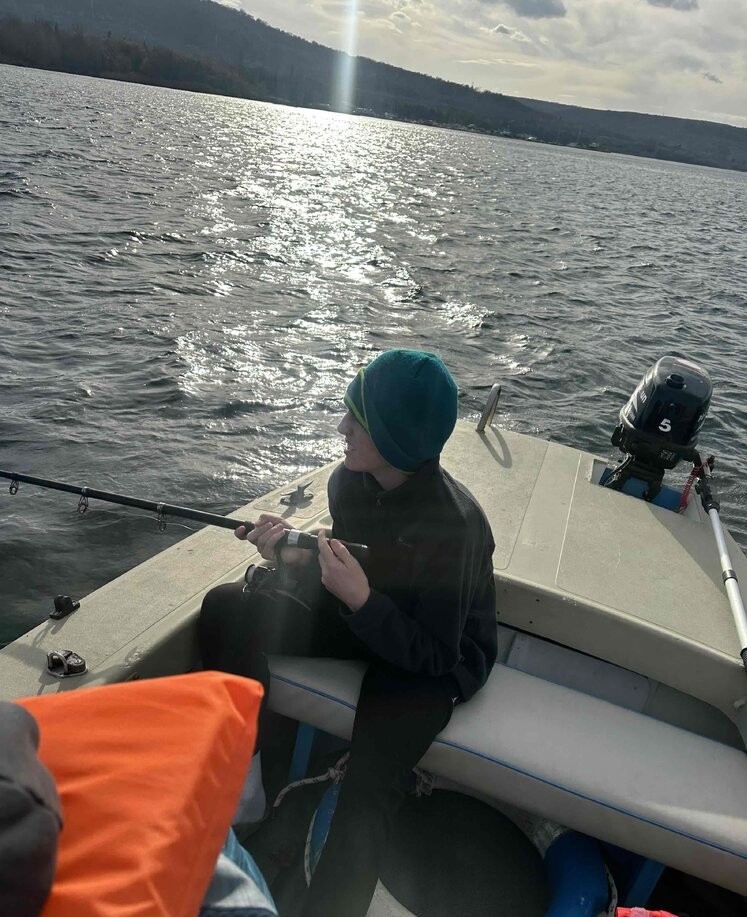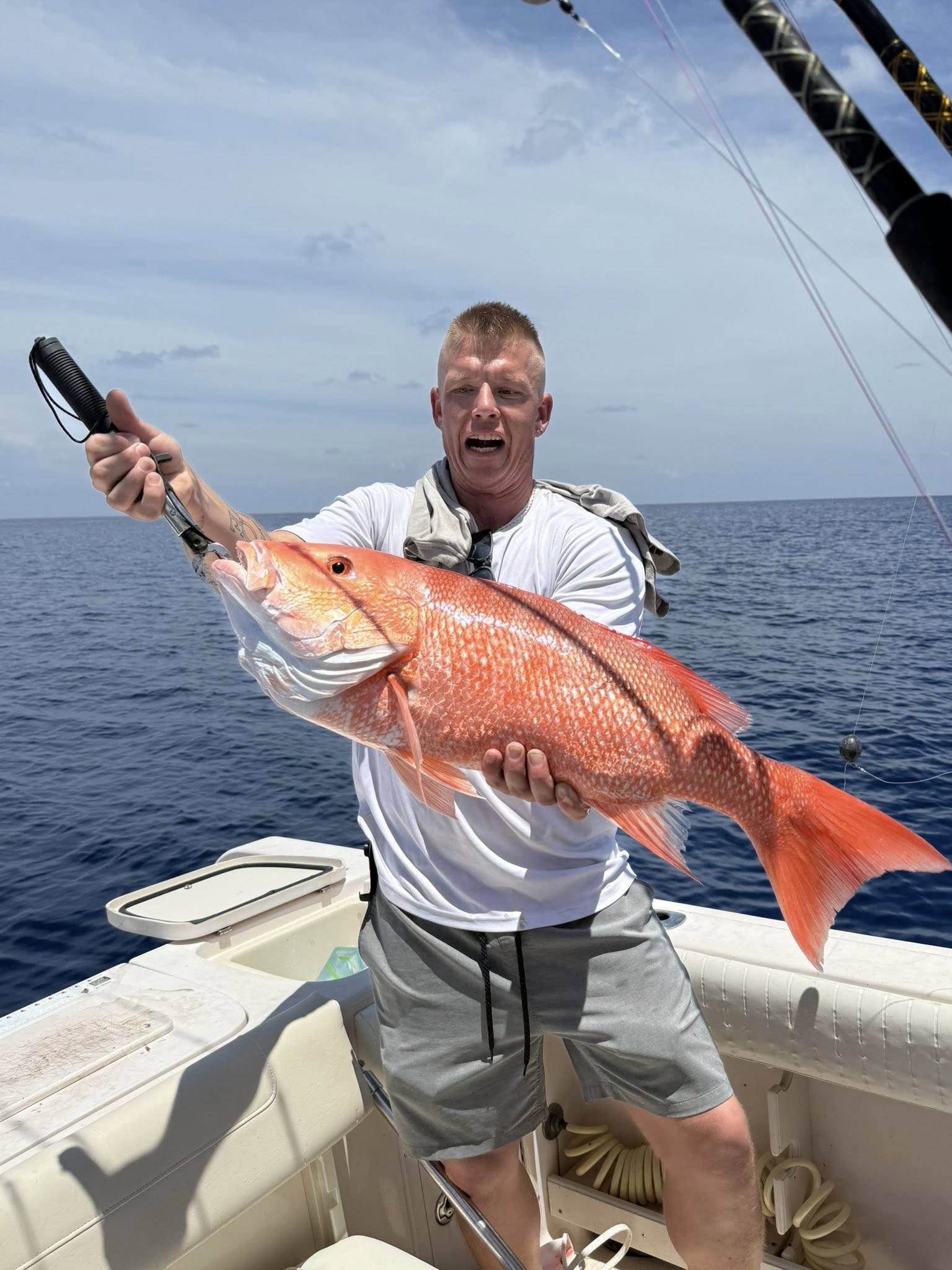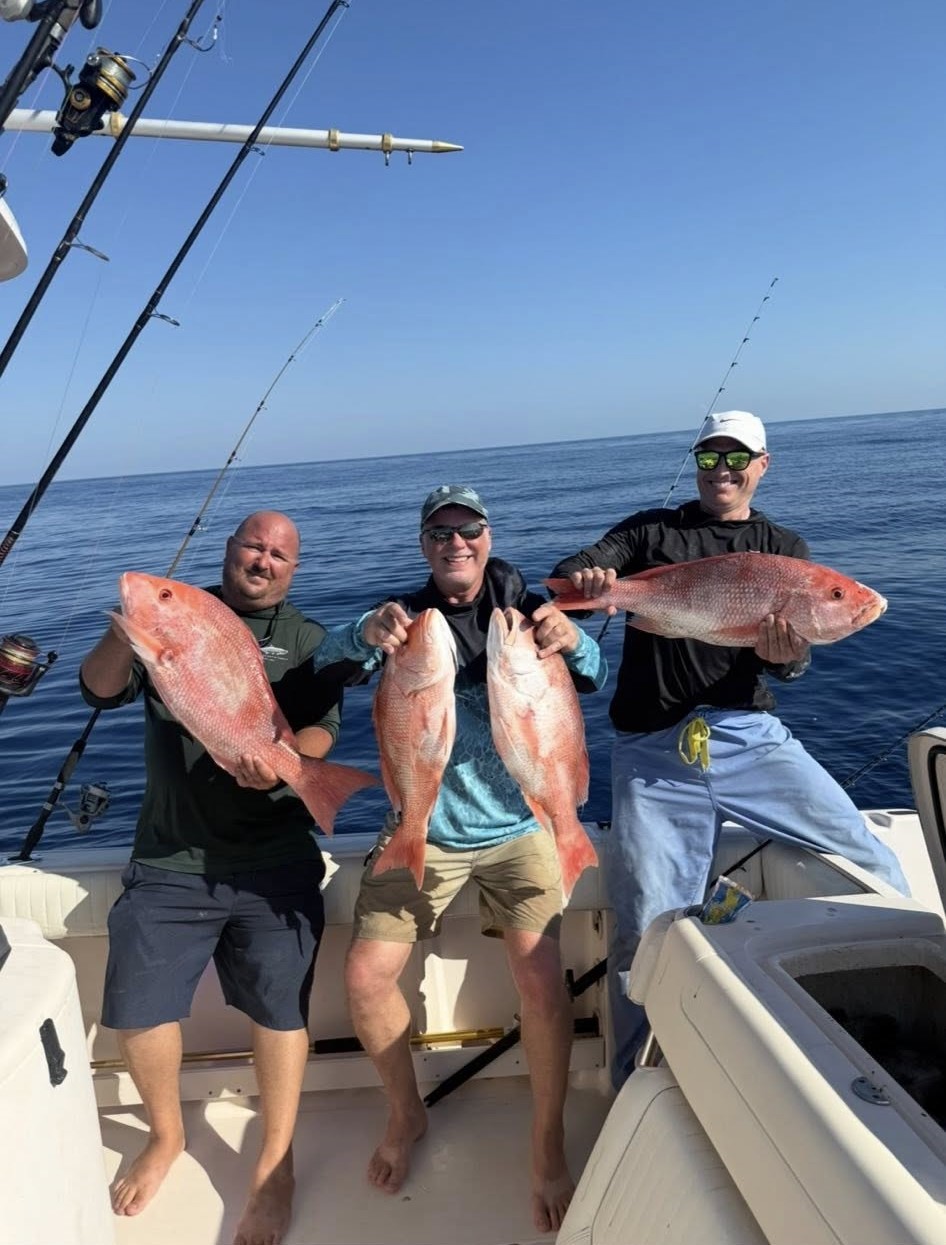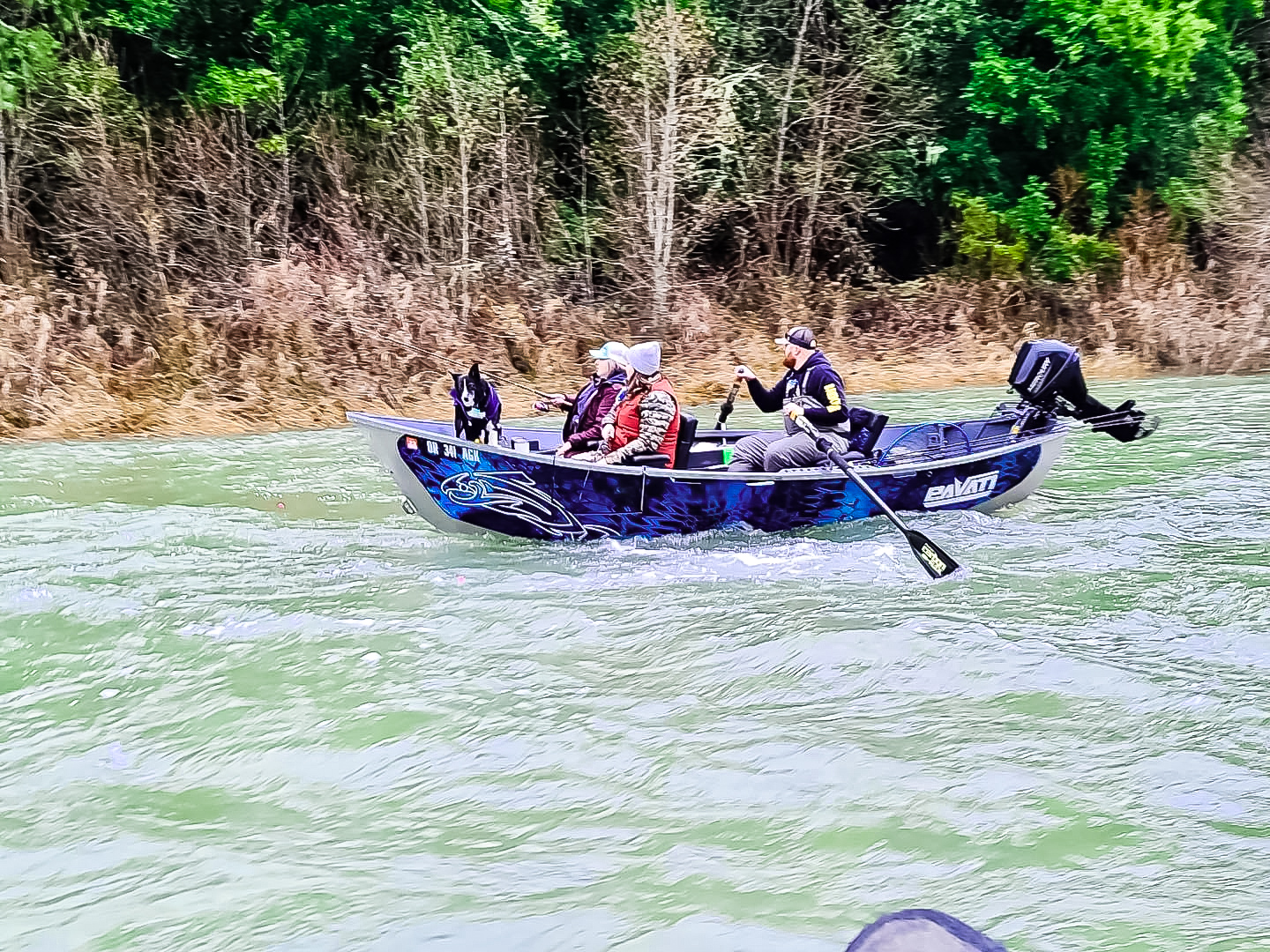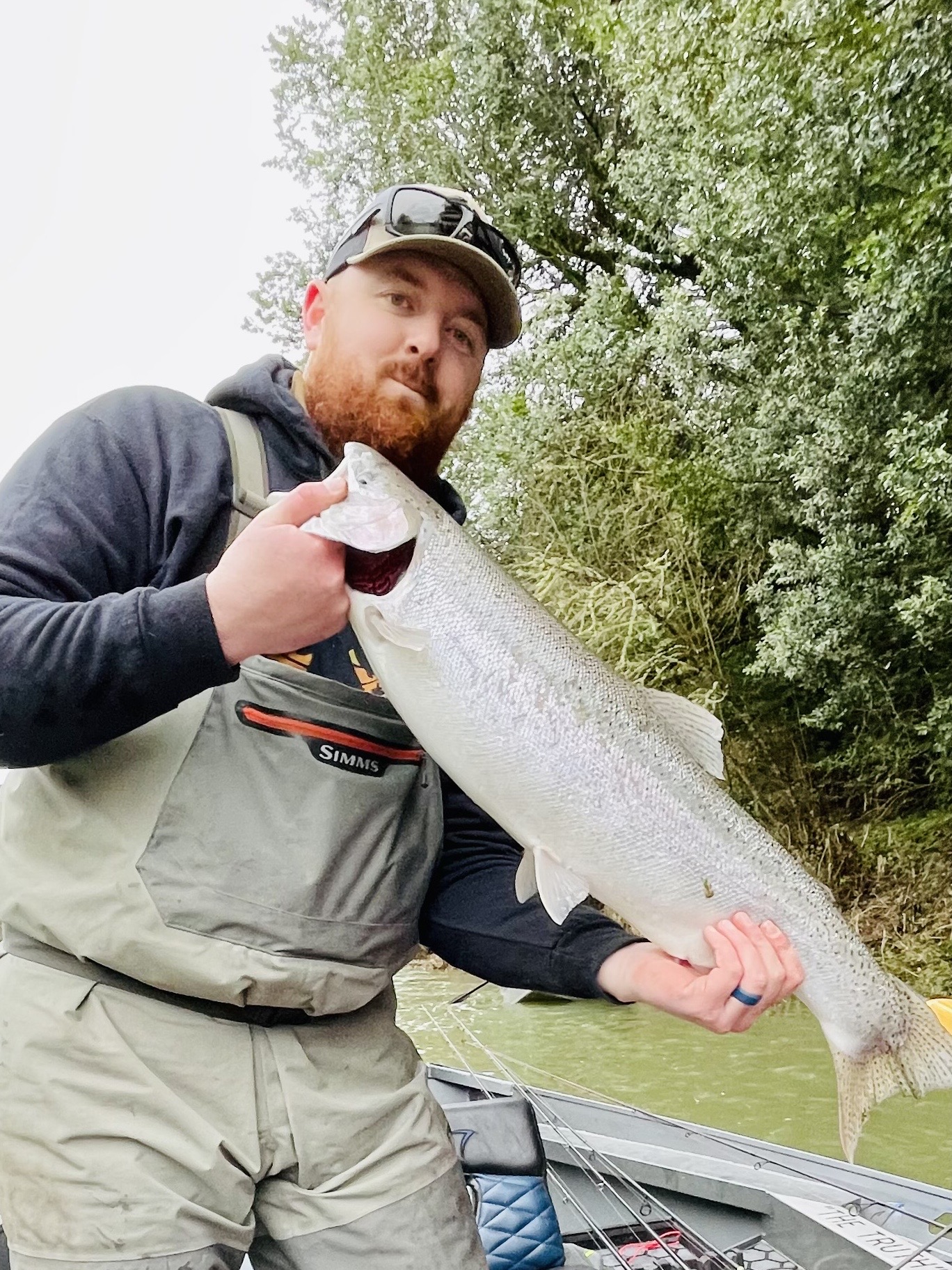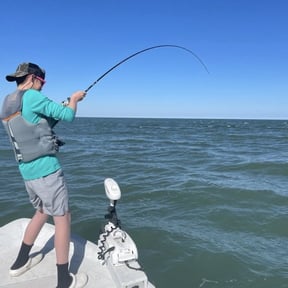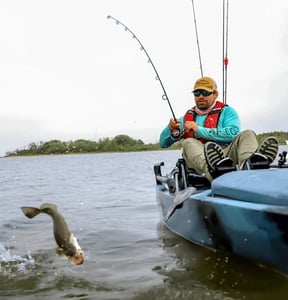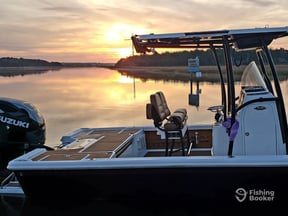Inshore, Flats Fishing in Pineland
Fly Fishing Pineland
Deep Sea Fishing in Playa Herradura
Full Day Offshore
Salmon Fishing Trip
Steelhead Fishing Trip
Deep Sea, Nearshore Fishing in Puerto Aventuras
Fishing Charter, Puerto Aventuras
Deep Sea, Nearshore Fishing in Islamorada
4 Hour Half Day
Deep Sea, Nearshore Fishing in Islamorada
6 Hour 3/4 Day
Black Sea Trips
Deep Sea, Nearshore Fishing in Sarasota
Red Snapper December Re-Open
Winter Steelhead
We started Captain Experiences to make it easy to book fishing and hunting guides around the world. With over 2,000 Damn Good Guides, our platform makes finding and booking a trip seamless. Head here to check out our trips.
Captain Experiences (Jonathan): Alrighty, there we go. Hey everybody this is Jonathan with captainexperiences.com and I’m here live with John Bilotta, certified master casting instructor, how’s it going?
John: Good Jonathan, how are you? Nice to be with you.
Captain Experiences: Good, nice to be with you too. Thanks a lot for doing this, I’m really excited to get into that trip that you have down Patagonia for sea trout.
But before that we just kind of want to learn about you and about the casting instruction that you offer and all that. So we can just kick things off with a little intro from you if you don’t mind.
John Bilotta: Certified Master Casting Instructor
John: Sure, so I’m based in Madison, Connecticut now. For many years, I lived in Washington DC, but I finally moved North and I’ve been fishing most of my life and kind of really got into fly-fishing about twenty-five years ago heavily, and kind of studied and became an instructor and took a couple different exams throughout my life.
So I’m a master casting instructor and certified two-handed casting instructor for Fly Fishers International and that’s been a big part of what I’ve done.
And then I’ve kind of done some guiding in Maryland and a little bit up here in Connecticut. And what I end up really doing is hosting about four or five trips a year which primarily started for me as a way to teach. I’d have students who wouldn’t fish surprisingly. They take lessons and they never really get on the water.
So I kind of started setting up these trips to do three or four or five times a year that would put people in different places around the world, that they could learn how to fish, both the single-handed angler or a two-handed angler (spey casting). And that’s been wonderful and that just kind of expanded from there.
And now some of them are students and some of them are old friends and some of them are just people I just kind of connected with along the way.
Captain Experiences: That’s amazing. So for everyone that’s viewing us right now, feel free to add your comments and sorry John, we’re not trying to let anybody off easy on these interviews!
Becoming a Master Casting Instructor
I kind of want to ask about that process of becoming a master casting instructor. What all does that entail from going from that step of being someone who is very passionate about the sport to also becoming a master casting instructor?
John: Well, there's a process. Your first exam that you take is your certified casting instructor exam. And that’s can be a several year preparation process.
A lot of people are good casters and what this program that Fly Fishers International does and promotes is really about teaching more than casting. So you need to be a very good caster but it’s not so much a competition casting program.
There’s other places that if you really kind of want to win medals for casting, you can do that in other places and that’s fine. This is about how to teach and how to teach people a skill. And so you kind of have to merge the two abilities (casting and teaching) as you go along.
And so, you prepare and there’s a written exam and then there’s a performance exam and there’s a teaching part of the exam for CI's (casting instructors). And then to go from a CI to an MCI, a master instructor- it sort of depends on the person. It can be again another, just put a number on it, three to five to six year process.
It could be a lifetime process for certain people. And then it’s again just more skills, more performance skills, a higher level of learning, kind of like going from your undergraduate to your graduate degree programs and things like that.
Captain Experiences: Yeah. That’s amazing.
Becoming a Two-Handed (Spey) Casting Instructor
John: And then a two-handed instructor just focuses on casting with the spey rod.
So I’ve walked through that over probably about eight years, ten years to kind of get through that process or through all of those hurdles and you work with really good people around the country, around the world actually.
It’s a wonderful global organization, probably the best part of Fly Fishers International for me has been meeting and getting to know other guides and anglers and instructors from around the world. And it also helped me in this sort of hosted trip business that I’ve put together over the years.
Spey Casting 101
Captain Experiences: That’s amazing! John, can you touch on spey casting a little bit for people who might be unfamiliar?
John: Spey casting is really two-handed rods or longer fly rods. They’re generally between twelve and fifteen feet in length.
You fish them with different types of line. There’s a Skagit series of lines, Scandinavian. Those are shooting heads.
And then you have longer bellied lines that would be sort of traditional salmon lines that you would think of, from Scotland or Ireland. And like that, we typically use them in the Midwest around the Great Lakes.
We use them a lot in the Pacific Northwest, obviously British Columbia and Canada. But recently, the evolution as a process of using them, it’s just a tool. It’s just a longer fly rod and you use both hands to manipulate the rod.
I find that I can cast farther with less effort. So, I waited to be there most every day and I’ll take clients out and give them lessons and look for striped bass and we’ll fish with two hand grunts.
You know, I have friends down in Alabama that I’m sort of starting to get them to fish two-handed on certain beaches or certain tidal areas that they can wade and not sink in the mud.
There are great rods to use, you know. You can have a lot of fun and then at the same time you can practice those skills. So when you do go to Alaska or Argentina or Russia or something, you’re practicing along the way.
Captain Experiences: That’s really cool because I don’t know much at all about spey casting. All I think of is steelhead but really cool to hear you talk about surf casting with them to get a longer cast out there for stripers and whatnot.
Spey Casting Washington D.C.
John: Before I moved up here, I used to live in the Washington, DC area and with several good friends of mine at the time, we all kind of got into using two-handed rods to fish for shad.
So on the Potomac River you have a big run of American shad. And you know, it’s a beautiful tool to use to reach out to touch those fish. So it’s just another thing that you can do, you know. It’s just wherever you want to use it, you can make it work.
Estancia Las Buitreras of the Rio Gallegos River in Patagonia
Captain Experiences: Awesome. So this trip to Argentina that you have coming up, is that an opportunity for spey casting for sea trout? Can you talk more about that trip in general?
John: It is. So every year, I take a group to Estancia Las Buitreras which is on the Rio Gallegos River in Southern Argentina.
This is one of the finest sea run brown trout rivers in the world. And the lodge is fabulous. I’ll talk about that in a little bit but yeah, we primarily- you can fish a single-handed rod there, fine.
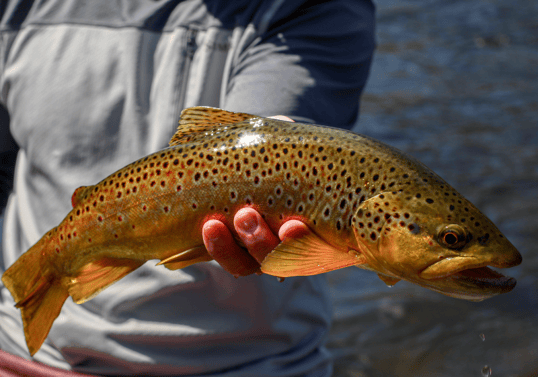
If you want to bring a seven and eight-weight to fish down there, it’ll work.
But most people and most of the guys that I take down there that are going to fish are using a two-handed rod between twelve and thirteen and a half feet, probably a seven, eight weight rod.
And you know, because you can cast farther, we fish with a Scandinavian shooting head and about a fifteen to sixteen foot leader. And you know, we’re hooking 10 to 20 pound plus fish. And It’s a wonderful place.
I’m there in January. I mean, I’m usually there, season's from January to March, typically down there for summer season.
I like to go at the beginning of the season when those fish have just entered the system. And these are, you know just big, beautiful, silver fish out of the ocean.
Sea Trout Fishing Patagonia's Early Summer Season
Captain Experiences: Yeah. Can you talk about what the conditions are like, you know at the beginning of the season versus kind of, you know more of the middle to the end?
John: The best thing that I tell people is just think about going out west in June. Because it can be beautiful or it can still be kind of cold. I mean, it doesn’t snow down there where we are or anything like that.
But you know, you kind of come prepared for all weather in June but it’s usually in that, I don’t know sixty-five to low 70s during the day. And you know the wind can blow down there quite heavily at times but people learn how to fish that.
And my groups, I mean I have everybody from brand new beginners, they’ve never fly-fished. They’ve never fished with two-handed rods, to very sophisticated, experienced anglers.
And the nice thing about this fishery is that it’s forgiving enough that I can bring somebody who’s new down there. And I’ll give them some instruction. And all of the guides are really good.
The Argentine guides down there are terrific. And they’ll catch fish and then I can have very advanced people and they’ll work the water differently and you know, they’ll catch wonderfully large fish. So, it’s a terrific place and it’s a beautiful environment too. That’s the other thing, I mean just the light and the sort of nature that’s down there is, it’s wonderful.
Captain Experiences: Wow! That’s actually eye-opening to me personally to hear because I kind of think about fishing down there and with spey casting and everything as you know, I don’t know how to do that and there’s no chance it will be a waste of a trip. But that’s cool to hear.
John: It’s not that hard. And the mechanics of using a one, or maybe an over-simplification. But a lot of the mechanics of using a two-handed rod are very similar to the mechanics of using a one-handed rod. It's just that you have a hand out at the bottom and a hand up here on the top of the rod.
And they manipulate the rod just like your wrist does when it rotates the rod at the end of a forward stroke. The same kind of premise but all the other things that you kind of hear people say you want a straight line path of the rod tip, you know, those things hold true when you’re two-handed fishing with the two-handed rod just like with the same liner rod.
Fishing Split Days in Patagonia
John: The other thing that’s fabulous about Argentina that I really like, and the people I bring down there like is that we fish a split day.
So a lot of places and it’s understandable- I take people to different lodges just like this too- You fish at 8:00am to 4:00pm, 8:00am or 9:00am to 5:00pm or sort of solid block day.
Down there, you get up, you’re going to eat breakfast. We’re going to go out and fish from eight to twelve-thirty. And then, we’re going to come back to the lodge and we’ll have a big, beautiful, wonderful lunch.
And then, the really smart people go and take a nap.
Captain Experiences: Hahaha yeah.
John: But other people, maybe check their emails and go read a book and go for walks.
Some people, you know run but if you’re smart you’ll take a book, nap and then you get up about 4:30pm, you kind of get your gear back on. They’ll make you a sandwich if you want something early in the evening. And then, you go out and fish from 5:00pm until dark about 10:30pm to 11:00pm.
Captain Experiences: Oh, wow!
John: So, this split fishing day is very nice especially for someone, you know, of my age. It’s just nice to have that little break and you kind of recharge and you read the water differently. And then you get to fish into the nighttime or the early evening, the twilight hour, in which the fish get very active. You know some of your most explosive eats come at that time of the day. So it’s great.
Captain Experiences: Yeah, that sounds amazing to me. I’m just listening well while you talk about it. You know, I was thinking 4:30pm, you get a few hours but you’re so far down south, it stays light.
John: I mean, it’s light until 11:00pm usually at night in January. And it’s back to light about 4:30am or 5:00am in the morning.
Estancia Las Buitreras
So the Estancia is, I think it’s 290,000 hectares which is, give or take 700,000 acres I think. It’s a lot. And somebody can check that.
And then, we fish about 25 miles of river on the ranch. So, it’s me and twelve other people and that’s it.
And 25 miles of river, I mean it’s amazing. And the way it works is you’ll fish like it’s broken up into zones.
So from zone 0 to I think zone 6. And you’ll fish those, like the morning you’ll fish zero, in the afternoon you’ll fish one and the next day you’ll fish two and then three. And then the week you’ll flip and go and fish the same cycle again but you would, instead of fishing zone 0 in the morning, you would fish it in the afternoon. So you get to fish those two sections of the river in different times a day which is a great way to approach it.
Very easy to wade and that’s lovely for people who aren’t comfortable in moving water. The water isn’t very strong.
There’s a lot of other places that brought people where it’s more of a challenge. I mean, I’ll have people bring a wading staff but it’s not usually a requirement.
And for those who don’t want to walk very far or can’t walk very far, it’s pretty nice because we drive, I mean you drive up and down the ranch. And in these Toyota pickup trucks and, you just pretty much go right up to the river where you’re going to fish.
So, if I have somebody that you know, has a bad knee or something, I can pretty much drop them off and put them in the water right there.
And then, you’re about like, if you and I are fishing together, we’d probably be anywhere from a quarter of a mile to a half a mile apart.
So, you have, you know, you don’t feel on top of one another and you want to take a break and go hang out but you have a lot of space. And you have your section of the river that nobody else has really been in and so that’s terrific. Yeah. And the food is amazing and you’ll get fat while you’re down there!
Captain Experiences: Yeah. There’s naps.
Drink Your Dinner in Patagonia
John: Yeah. Between the naps and desserts, bad news. If you’re a wine drinker, there’s some of the best Merlot in the world, it’s produced in North Argentina. And most of their best wines don’t get sent out of the country, typically. So the wine in Estancia is very nice.
When you come home about 11 o’clock at night, we don’t have a big dinner anymore. You just get a beer or a glass of wine they serve sort of a spread around the sofas.
And the people just sit up and talk about their fishing day and you know, relax and then either go to bed, or there’s usually the collection that stays up all night.
And then there’s the other group like me who goes to bed right, recharges for the next day. But that’s, you know kind of how that place works.
Santa Cruz River Lodge for Argentine Steelhead
As I said, I’ll be down there in January. I’ll be back in Argentina for a steelhead trip on the Santa Cruz River, which is another river nearby. It’s a new lodge that I’m taking a group to, called the Santa Cruz River Lodge, owned by some of the same guys that I work with at Las Buitreras and that’s for steelhead.
So that river, the Santa Cruz River has a run of steelhead that comes in from the Atlantic side and migrates up the river from the ocean to spawn in the spring. And it’s really pretty fabulous. Another, it’s a big river. The Rio Gallegos, where Las Buitreras is, is pretty small, I mean it’s 150, 250. The Rio or the Santa Cruz, it’s a quarter of a mile wide.
Atlantic Steelhead
Captain Experiences: Is Santa Cruz the only Atlantic steelhead river in the world? Is that correct?
John: That’s what they said, you know. And it’s a beautiful river to fish and like fishing for steelhead, it's challenging, you know. There’s some lovely fish there. Yeah. We’ll be back there in April.
Steelhead 101
Captain Experiences: So, I have a couple of questions right there for some people who might not know what a steelhead is, would you mind describing that?
John: Sure. It’s basically a sea run rainbow trout. I mean, it’s a trout like a trout that migrates into the ocean that lives in the ocean comes back in to spawn. Typically, the fish ranges in the Pacific Northwest. And mostly in the Pacific Northwest. These fish through to my understanding are- their origin to me, whether they were released into the river a hundred years ago or 89 or 90 years ago, I think is probably what happened. But they’re now wild fish. They just migrated in and out. But they weren’t originally there [in Argentina].
Captain Experiences: Yeah. So it’s a very large standing population.
John: Yeah. Very large and they have that in the river of Santa Cruz. They have a run of king salmon, I believe and silver salmon and as well as sea-run brown trout at a different time. But it’s a fabulous river fish.
Captain Experiences: So, do the sea trout, they don’t migrate up the river where the steelhead were.
John: I mean, they will not know that sea-run brown trout do migrate up river, some do. Again as what, because that river Gallegos runs all the way to Chile, I think it does. Runs way up into Argentina. I’m pretty sure it turns the corner into Chile but, our feeders come off of that river. And sometimes you catch sea-runs way up, up river. That way, but some of the fish come in spawn and leave the estuary water outside the Gallegos.
Steelhead vs Sea Trout
Captain Experiences: I guess.. Go ahead, sorry. I guess my question is, what’s the difference between steelhead and sea trout.
John: Oh, different fish. I mean the difference is one is a brown trout family and one is a rainbow trout family.
Captain Experiences: Okay. But they both swim up the river, the sea trout?
John: Well, they do swim up river, they swim down river. I mean, some are born in the river and swim out.
Again, you probably get a better answer with a fisheries biologist here than how I could serve you.
But some fish, they’re born in the river, they’ll live in the river for a certain period of their lifetime at least in the Gallegos. They will swim out into the estuary and take up residence in the saltwater estuary for a certain period.
And then come back into the river to either spawn mostly or spawn and then resume residence in the river. Well, if you start to fish that are, there are some days you’ll find fish - they’re bright silver. And other days you’ll find those fish that are, that look like a traditional brown trout that they’ve been back.
I mean, they’re big. They’re 15 pound-fish, but they’ve been back in the river long enough to change back into, well it would look like a traditional brown trout. Alright, that's a good catch. And I really enjoy them.
Captain Experiences: Wow. Well, so you know backing up a bit. How did you get introduced into fishing? You know, was it your family? Did you grow up on the shore?
John: Oh, okay. Yes. I mean, I was one of those obsessive-compulsive kid anglers. And my grandfather owned a farm. And when we would get sent there in the summer and you know if we finished the chores, we would go fish in somebody's pond. And I would catch fish and I would bring him back and I would dump all my little bluegills mostly into one of those big water containers. This was back in the day, used to put milk cans in a water trough to keep them cool until we picked them up the next day. It was a pretty primitive farm. Anyway, I would dump all of my fish into this big water trough and catch him again until he died. So I mean, I tormented him. {Jonathan: chuckles} And you know, that was.. I did that from the time I was really very little and it just stayed with me most of my life.
Captain Experiences: Wow! Yes. So what about you know your introduction to fly-fishing, how did that come about.
John: So, yeah. That happens, yeah. Ah well, I worked overseas for a number of years for a number of years. I was a journalist and I hadn’t had time to fish, I just kind of lived and travelled and did a lot of those things and came back to the States. And a friend of mine, our families went to their house out in West Virginia and he put a fly rod in my hand. And that was kind of you know, it was just like a perfect absolute thing for me to do. And after that, like all obsessive compulsive behaviours it sort of took over and I fished on fresh water, I mean again anything from bluegill to blue fish. I mean, I would like to catch on a fly rod. And you know, it’s been really good to me. So I mean, you know and it’s taken me now all over the world. I mean, I managed to fish. There’s a lot of places I still want to fish but I made a lot of friends and kind of through FFI. That's a good resource of friends around the world to touch base with. That helped me both learn but also go out and fish more in different places. Found the fish in India and things like that, in Latin America and Alaska.
Captain Experiences: So you know, that’s unbelievable! What would you say is your favorite place to fish, you know what’s the number one?
John: Honestly, I really like the Rio Gallegos in Argentina. I mean, I’m sort of conflicted with, between salt water. I like fishing for bonefish. And I like wading flats and fishing for bonefish. So I kind of go from there to fishing for salmon and steelhead. But I really like Argentino and I like the food, the wine and the fishing. And so that’s really been one of my places I’ve liked. I’ve done a couple of clinics in the last few years down towards Patagonia in Chile. And a friend of mine is the head guy down at the hotel of Patagonia down there . And they have a wonderful king salmon run. So I have been tortured myself trying to catch king salmon down there. And I’ve really enjoyed going down there to fish but that’s towards Patagonia if those who haven’t seen, there’s a way down on this south west coast of Chile almost to the tip. The weather is really severe down there. So it can be beautiful. And then about like 20 minutes later, you can be like a blizzard. And then 20 minutes later, you know the wind is blowing but it’s not raining and then the temperature drops but the fish don’t care. They just roll in there, roll out and on like clock works. So, anyway.
Captain Experiences: So yeah. No, that’s amazing. One of the questions that we want to ask earlier before we start is that, you know what makes it different, what makes your trip different, whether someone is fishing with you down in Patagonia or one of the trips that you go---- what makes your trip different?
John: As for me as I said earlier , this has been a teaching endeavor. I mean, I guide people locally, it’s because I’ve given them lessons. And now I need to take them fishing. I mean, most of the guided days that I do or sort of teaching instruction days, I carry guide lessons and carry insurance and stuff. And I take them out of a guided day. This sort of trip started to give more people experience on the water. And so, when somebody goes on one of my trips between now and the time that they go, we work together. If you live close to me, if you’re lucky enough to drive in the distance you just show up here and I give you lessons so I don’t charge you for lessons anymore. Between now and the time we go to Argentina or Christmas Island, or wherever we’re going. That If you live where you are, we do this. And then it’s now getting to the point where I’ll bombard you with articles. My kids, I mean I’ll send them 40-million How to fish Dreamer videos.
Captain Experiences: Yeah. I met that newsletter.
John: But you know, it’s this thing where you can now, I can coach, mentor, bring people along even if we are not 5 miles away from each other. And that’s the part about it. So I invest my time in their development over the fill-in-the-blank period. And honestly, most of them are. Then become friends. And we just stay in touch and then it’s like you call me up and say, I’m thinking about buying this sage two-handed rod; what do you think and we talked about it. So, that’s how it works for me.
Captain Experiences: Yeah. That’s fantastic. Is there a specific memory or few memories that stand out for you as your best memory as an instructor or as a guide.
John: It has been taking people who typically didn’t have experience with the outdoors. And somehow connecting them to catching fish is good and important. I mean, I want them to do that but I also just want to feel the river or feel the ocean. And in a different way, typically people as I said who haven’t grown up with that sort of an experience. So that to me again is part of this sharing little experience with someone but helping them put it into their own world in a way to make them a better person.
Captain Experiences: Wow. That’s amazing. That really is.That brings me to my next question which is, Why do you think what you do is important?
John: Well, you know, I have a lot of friends and I’m kind of constantly telling them, we all have so many days on the planet and particularly with people that they care about. You know, I’m almost above them. And say, you need to go. You should come on one of my trips. Okay, you don’t want to go on one of my trips, you should go climb Mount Kilimanjaro with your daughter because they’re going to grow up and you’re going to grow old and fat and not going to be able to climb that mountain. So you should do those things now. And for some people they hear that. We do hear that. Other people are too busy, they don’t have enough time. And sometimes, you run out of time. And we’ve all had that sort of experience and so for me this activity, fly-fishing - it’s a wonderful thing. And I like it but it’s so much more than just the part of stick and fish. It’s really the part of how and who you share it with and where you get to do it and what part of the world. The people you meet in different places whether it’s in this country or other countries . And that’s really where it’s at for me.
Captain Experiences: Wow. That’s amazing! I mean, I keep using that word I guess, “ Amazing” but it really is. That’s powerful stuff. How do you feel about the future of fishing on the future of fly-fishing?
John: I like that we’re opening up the fly-fishing community to more than just sort of the caricature of old, rich white guys. I think that it’s good that the price of equipment has come down to a more reasonable price point that we opened up the fishing environments so that it’s not just catching trout on dry flies in Montana which is wonderful. It’s catching bluegills in a ditch in Virginia. Or learning to throw streamers for scribers in Connecticut with a two-handed rod. That’s awesome. And then the third point that's important, is that our ability to invite women into this activity, both with men but also on their own, I think has been terrific. That’s really just this broadening. This is something that is good for the commercial side of the sport. But it’s also good for the resource. And that’s really the part that the more people, I mean, pressure is a tough thing but more people that are involved that care about the resource, the more people are going to sign petitions and try to protect or clean up landscapes around the country.
Captain Experiences: Yeah. That’s amazing. That’s all we're trying to do with Captain Experiences is to break down these barriers that people are trying to find one of these amazing trips and get out there. That’s really the name of the game with more people involved and kind of changing the demographics maybe a little bit. But amazing! Yeah. Let’s see. Tina Shaefbauer popped in here, she says it’s not always about catching it without catching up the Fisher and it’s used at the end of the day, it’s all about getting out there in nature and feeling the river like what you said, that’s a really cool way to put it. But the last question before our rapid fire here, if you had one more cast to throw in your life, What would you be throwing and where would you be?
John: What would I be throwing? I probably throw a little fleecy, like this. But I would probably, I would like to go and fish in Cape Code with my two-handed rods this year. That’s what I’m going to spend a lot of time trying to do more of looking for bigger stripers up there.
Captain Experiences: No way. Yeah. I’m actually going up there in a few weeks if you’ll be around going up as a challenger visits to fish for strike. Yeah. We were finishing up our bucket list challenge today. And the number two trip on the list was Bluefin Tuna trip with Captain Drew up there through downing. That fisheries are amazing. The stripers, the bluefish and everything. It’s unbelievable but cool. We’ll hit these rapid-fire questions quickly. Okay, everyone who is watching, I don’t know if Izzie Michael or anyone else wants to pop in with some questions for you. But here we go, what’s your favorite body of water to fish?
John: The Rio Gallegos in Argentina.
Captain Experiences: Awesome! If you had to be doing something different, what would it be?
John: It wouldn’t be mowing a lawn. If I had to do something different, I’d like to, I would spend more time on tarpon fishing. And I like to saltwater fish but it’s like one of those finding a time to do that. Yeah.
Captain Experiences: Yeah. Awesome. Do you have any other hobbies outside of fishing?
John: Ah. No. Because it’s kind of like one addiction was enough. And my wife is really wonderful. And then, has been very good about this all of these years. It’s really almost why I don’t even tie flies because I knew that if I got into tying flies, it would be too much. So I just sort of stick with casting and fishing and sort of limit the destructive mess that I make in the house to those two activities.
Captain Experiences: [Chuckles] Yeah. I’m sure there’s a lot of random fly tying materials and things all around.
John: Yeah.Yes. There would be.
Captain Experiences: Yeah, that's awesome! Oh Izzy's here and she's asking what's the favorite trip for young people?
John: I think that for young people when they hit national parks in the Rockies, sort of anywhere up the Rockies, there's so much water there and it's really pretty inexpensive to fish. And in some areas, you almost just need a fly rod. You can wade in shorts and stuff like that. That's where I would really up and do.
Captain Experiences: Lots of great things.
John: The great thing about fall, you don't have to always spend money to do it. And in fact, one of the joys is trying to figure out whether you live in a city is what the urban area fishery is around you. Isn't really understood because you can do that and just get outside. Back to the idea of getting outside anytime and spending more time outside.
John: Use it as that. And the more time you spend on the water. Yeah.
Captain Experiences: Yeah. Well you know that brings to mind that robs in why I think it connected me with him in DC. He has some really cool urban trips where we were carved and things like that which has become our sport. Yeah. Well that's awesome! So next on the rapid-fire, so do you have a nickname and so how did you get it?
John: Ah, you know, I would probably get a fifth. But I can’t really remember if I had a nickname. If I would recall, probably I would. Yes. yeah. I think so.
John: Awesome. Fair enough. Let's see Michael just posted. Do you have a most memorable moment on the water?
John: The most memorable what?
Captain Experiences: Wow.
John: I hooked five blue marlin in one day once. Not with a fly-rod though. But it’s an unconventional tackle in Hawaii and it was so it was an amazing day obviously that doesn't happen very often. But by the time I was done I, about, had a stroke. So many fish in a row they were wonderful to catch and they almost had to call an ambulance and take me off the boat. But it was still wonderful. That was probably the most memorable day.
Captain Experiences: It might be one of the best memories we've heard in all of these interviews that we've done. That's pretty amazing! Do you have a favorite song or band?
John: Oh, I have a lot of them. But I would probably stick with Crosby StillsNash & Young or the Eagles.
Captain Experiences: Nice Canora-- Let's see, Do you have a favorite movie?
John: The Godfather.
Captain Experiences: Oh man, amazing! Yeah. That's my personal favorite. Let's see, it’s popping in again. Which of your daughters has the best cast, she says. From Isabel Bilotta.
John: I'm a man of many daughters relatively blessed in that department. And is by far you've got the best cast yeah.
Captain Experiences: Oh, Wow. That's amazing! Good stuff. It's all that with hard work and dedication. That's great. Do you have a favorite food?
John: Italian food.
Captain Experiences: Nice, yeah I mean, Italian, The Godfather, the Eagles. Do you have a drink of choice?
John: No, I pretty much used to drink a lot of Chardonnay. That would be probably as good as it got.
Captain Experiences: Frankie’s a little upset that you went with Izzy on that last one.
John: See, I just kind of hope that Izzy was the last person that I look out for. Jonathan: [Laughs] Oh, man. That’s funny. Like what I said, at the beginning of the interview we don't let anybody off easy. That's awesome! Do you have a favorite sports team?
John: The Chicago White Sox.
Captain Experiences: Nice. Southside guy.
John: That’s my favorite baseball team.
Captain Experiences: Nice. That's awesome!. If you could have one superpower, what would be?
John: Able to leap tall buildings in a single bound.
Captain Experiences: I haven't heard that one but I like it. That's great. What was your last Halloween costume?
John: Ah. Probably some cowboy outfit.
Captain Experiences: That's a good one. What do you want for Christmas?
John: It would be a fly rod or two or a trip. Either one or the other.
Captain Experiences: Nice. Yeah. Can you name one of the Seven Dwarfs?
John: Dopey.
Captain Experiences: Good one. How many pull-ups can you do in a row?
John: Probably one.
Captain Experiences: One. [chuckles]. Is LeBron James or Michael Jordan the best basketball player ever?
John: Oh.. I think LeBron James.
Captain Experiences: Wow that's big. What was the biggest fish you ever got?
John: Ah. Blue Marlin.
Captain Experiences: Where about?
John: Ah. Off cotta in Hawaii.
Captain Experiences: Wow. Well, that's all about it. Just wrap things up. Would you like to give a shout out to the troops of Armed Forces, doctors, nurses right now.
John: Well I mean.Yes, I would be very thankful for all the hard work. They're medical folks in terms of, and even the people just working in essential services around the country. A lot of people are contributing to the success that we're having and I thank them for taking care of people.
Captain Experiences: Yeah. Amazing! That about wraps it up John. I really appreciate that there's a lot of fun. I really enjoyed learning about the trips down there to Argentina to Chile.Is there anything more you think we need to touch on?
John: No I mean, I really appreciate you having me on. This is a great show you've got going. I encourage people to look post Covid here, help out your guides locally, help out your lodges here, there and everywhere. People are really, it's obviously going to be very hard for a lot of operations to survive. And people are going to be rolling over trips. I've had two trips already this year. Two of my hosted trips are canceled, those were getting rolled over into 2021. That's really tough for those operations to handle that carryover. It's going to affect their bottom lines. So the best thing we can do again whether you're looking at fishing with people in Texas or in the Rockies or out of the country is kind of figure out if you can go and help these places stay open.
Captain Experiences: Right.
John: Because they really are our frontline or one of our front lines on these resources on making people care about them and help take care of them.
Captain Experiences: Right. A lot of those trips are getting pushed to 2021 but you really can't make up loft on for 2020. So, what a lot of people have been saying is “hey if you're taking the trip for 2021, you could go ahead and deposit into that guide now. After 2020 things that just kind of help them. Last year, it was over the trough I guess.
John: Yep. That's exactly. But some of the guys have done, I've got my 2022 trip already selling spaces and people have put deposits down on that trip to Las Buitreras for that. For that very reason to help them, they lost like the last three weeks of this season because of COVID. And they had to close down early and it's just brutal. I mean as everybody knows but it's kind of now is to start to think about how we adjust to theShift.
Captain Experiences: Yeah definitely. With that, Tina says, thank you guys I really enjoyed the interviews. Thanks for tuning in. This has been great. So, thanks again John and hopefully we can do it again soon.
John: You’re welcome. Sounds great. Keep in touch.
Captain Experiences: Awesome! Take care.
Jonathan Newar
Updated on June 14, 2023

July 1, 2024
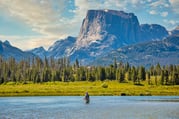
May 13, 2024
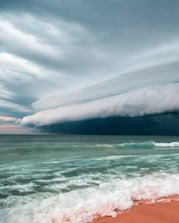
August 21, 2023
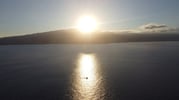
April 26, 2022
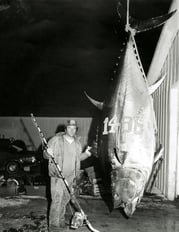
June 3, 2021
Related Articles
May 18, 2023
Featured Locations
- Fishing Charters Near Me
- Austin Fishing Guides
- Biloxi Fishing Charters
- Bradenton Fishing Charters
- Cabo San Lucas Fishing Charters
- Cancun Fishing Charters
- Cape Coral Fishing Charters
- Charleston Fishing Charters
- Clearwater Fishing Charters
- Corpus Christi Fishing Charters
- Crystal River Fishing Charters
- Dauphin Island Fishing Charters
- Daytona Beach Fishing Charters
- Destin Fishing Charters
- Fort Lauderdale Fishing Charters
- Fort Myers Fishing Charters
- Fort Walton Beach Fishing Charters
- Galveston Fishing Charters
- Gulf Shores Fishing Charters
- Hatteras Fishing Charters
- Hilton Head Fishing Charters
- Islamorada Fishing Charters
- Jacksonville Fishing Charters
- Jupiter Fishing Charters
- Key Largo Fishing Charters
- Key West Fishing Charters
- Kona Fishing Charters
- Lakeside Marblehead Fishing Charters
- Marathon Fishing Charters
- Marco Island Fishing Charters
- Miami Fishing Charters
- Montauk Fishing Charters
- Morehead City Fishing Charters
- Naples Fishing Charters
- New Orleans Fishing Charters
- New Smyrna Beach Fishing Charters
- Ocean City Fishing Charters
- Orange Beach Fishing Charters
- Panama City Beach Fishing Charters
- Pensacola Fishing Charters
- Pompano Beach Fishing Charters
- Port Aransas Fishing Charters
- Port Orange Fishing Charters
- Rockport Fishing Charters
- San Diego Fishing Charters
- San Juan Fishing Charters
- Sarasota Fishing Charters
- South Padre Island Fishing Charters
- St. Augustine Fishing Charters
- St. Petersburg Fishing Charters
- Tampa Fishing Charters
- Tarpon Springs Fishing Charters
- Venice Fishing Charters
- Virginia Beach Fishing Charters
- West Palm Beach Fishing Charters
- Wilmington Fishing Charters
- Wrightsville Beach Fishing Charters


